- ADMIN AREA MY BOOKSHELF MY DASHBOARD MY PROFILE SIGN OUT SIGN IN

Best Biographies of 2020
SEPT. 29, 2020
by Jonathan Alter
Students of recent presidential and world history will find Alter’s anecdotally rich narrative immensely rewarding. Full review >
FEB. 11, 2020
BIOGRAPHY & MEMOIR
by Kent Garrett & Jeanne Ellsworth
A fine contribution to the literature of civil rights and the African American experience. Full review >

APRIL 21, 2020
by Blake Gopnik
A fascinating, major work that will spark endless debates. Full review >

SEPT. 1, 2020
by Bradley Hope & Justin Scheck
An excellent work of impressive research on a dangerous world leader. Full review >

MARCH 10, 2020
by Ben Hubbard
As complete a portrait of an elusive autocrat as can be expected. Full review >

SEPT. 8, 2020
by Fredrik Logevall
Highly revealing, particularly for post-Camelot readers who wonder at the esteem in which JFK is held. Full review >

SEPT. 15, 2020
by Ben Macintyre
An absorbing study of a remarkably accomplished 20th-century spy. Full review >

OCT. 20, 2020
by Les Payne & Tamara Payne
A superb biography and an essential addition to the library of African American political engagement. Full review >

APRIL 14, 2020
by Jed Perl
A towering achievement. Full review >

by David S. Reynolds
Long but never boring. A fine cultural history and biography that is accessible to all readers, especially students. Full review >

by Volker Ullrich ; translated by Jefferson Chase
An endlessly revealing look at the Nazi regime that touches on large issues and small details alike. Full review >
More Book Lists

Recent News & Features

- Seen & Heard

- 20 Debuts From Authors To Watch
- Vacation Reads
- School’s Out: 25 Spectacular Summer Reads
- 20 Best Books To Read in June
- Episode 374: Emma Copley Eisenberg
- Episode 373: Guest Host Christopher Paolini
- Episode 372: Miranda July
- Episode 371: Best May Books with Aimee Nezhukumatathil

The Magazine: Kirkus Reviews
Featuring 313 industry-first reviews of fiction, nonfiction, children’s, and YA books; also in this special Science Fiction & Fantasy issue: Jeff VanderMeer, M.K. Asante, Erin Entrada Kelly, Kalynn Bayron, and more
The Kirkus Star
One of the most coveted designations in the book industry, the Kirkus Star marks books of exceptional merit.
The Kirkus Prize
The Kirkus Prize is among the richest literary awards in America, awarding $50,000 in three categories annually.
Great Books & News Curated For You
Be the first to read books news and see reviews, news and features in Kirkus Reviews . Get awesome content delivered to your inbox every week.
- Discover Books Fiction Thriller & Suspense Mystery & Detective Romance Science Fiction & Fantasy Nonfiction Biography & Memoir Teens & Young Adult Children's
- News & Features Bestsellers Book Lists Profiles Perspectives Awards Seen & Heard Book to Screen Kirkus TV videos In the News
- Kirkus Prize Winners & Finalists About the Kirkus Prize Kirkus Prize Judges
- Magazine Current Issue All Issues Manage My Subscription Subscribe
- Writers’ Center Hire a Professional Book Editor Get Your Book Reviewed Advertise Your Book Launch a Pro Connect Author Page Learn About The Book Industry
- More Kirkus Diversity Collections Kirkus Pro Connect My Account/Login
- About Kirkus History Our Team Contest FAQ Press Center Info For Publishers
- Privacy Policy
- Terms & Conditions
- Reprints, Permission & Excerpting Policy
© Copyright 2024 Kirkus Media LLC. All Rights Reserved.
Popular in this Genre
Hey there, book lover.
We’re glad you found a book that interests you!
Please select an existing bookshelf
Create a new bookshelf.
We can’t wait for you to join Kirkus!
Please sign up to continue.
It’s free and takes less than 10 seconds!
Already have an account? Log in.
Trouble signing in? Retrieve credentials.
Almost there!
- Industry Professional
Welcome Back!
Sign in using your Kirkus account
Contact us: 1-800-316-9361 or email [email protected].
Don’t fret. We’ll find you.
Magazine Subscribers ( How to Find Your Reader Number )
If You’ve Purchased Author Services
Don’t have an account yet? Sign Up.
- Craft and Criticism
- Fiction and Poetry
- News and Culture
- Lit Hub Radio
- Reading Lists

- Literary Criticism
- Craft and Advice
- In Conversation
- On Translation
- Short Story
- From the Novel
- Bookstores and Libraries
- Film and TV
- Art and Photography
- Freeman’s
- The Virtual Book Channel
- Behind the Mic
- Beyond the Page
- The Cosmic Library
- The Critic and Her Publics
- Emergence Magazine
- Fiction/Non/Fiction
- First Draft: A Dialogue on Writing
- The History of Literature
- I’m a Writer But
- Lit Century
- Tor Presents: Voyage Into Genre
- Windham-Campbell Prizes Podcast
- Write-minded
- The Best of the Decade
- Best Reviewed Books
- BookMarks Daily Giveaway
- The Daily Thrill
- CrimeReads Daily Giveaway
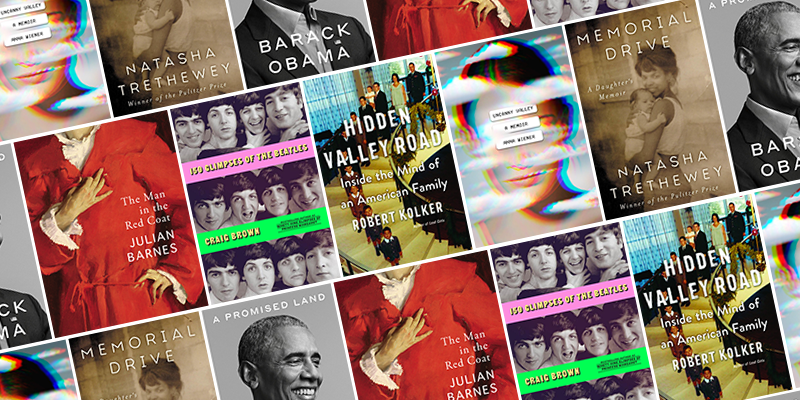
The Best Reviewed Memoirs and Biographies of 2020
Featuring barack obama, natasha trethewey, helen macdonald, sylvia plath, the beatles, and more.

Natasha Trethewey’s Memorial Drive , Barack Obama’s A Promised Land , Helen Macdonald’s Vesper Flights , Craig Brown’s 150 Glimpses of the Beatles , and Heather Clark’s Red Comet all feature among the best reviewed memoirs and biographies of 2020.
Brought to you by Book Marks , Lit Hub’s “Rotten Tomatoes for books.”
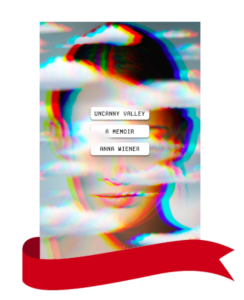
1. Uncanny Valley by Anna Wiener (MCD)
10 Rave • 19 Positive • 6 Mixed
Read a Profile of Anna Wiener here
“Wiener was, and maybe still is, one of us; far from seeking to disabuse civic-minded techno-skeptics of our views, she is here to fill out our worst-case scenarios with shrewd insight and literary detail … Wiener is a droll yet gentle guide … Wiener frequently emphasizes that, at the time, she didn’t realize all these buoyant 25-year-olds in performance outerwear were leading mankind down a treacherous path. She also sort of does know all along. Luckily, the tech industry controls the means of production for excuses to justify a fascination with its shiny surfaces and twisted logic … It’s possible to create a realistic portrait of contemporary San Francisco by simply listing all the harebrained new-money antics and ‘mindful’ hippie-redux principles that flourish there. All you have to do after that is juxtapose them with the effects of the city’s rocket-ship rents: a once-lively counterculture gasping for air and a ‘concentration of public pain’ shameful and shocking even to a native New Yorker. Wiener deploys this strategy liberally, with adroit specificity and arch timing. But the real strength of Uncanny Valley comes from her careful parsing of the complex motivations and implications that fortify this new surreality at every level, from the individual body to the body politic.”
–Lauren Oyler ( The New York Times Book Review )
2. Memorial Drive: A Daughter’s Memoir by Natasha Trethewey (Ecco)
20 Rave • 3 Positive
Listen to an interview with Natasha Trethewey here
“ Memorial Drive is, among so many other wondrous things, an exploration of a Black mother and daughter trying to get free in a land that conflates survival with freedom and womanhood with girlhood … A book that makes a reader feel as much as Memorial Drive does cannot be written without an absolute mastery of varied modes of discourse … In one of the book’s most devastating and artful chapters, Trethewey makes an unexpected but wholly necessary switch to the second person … What happens in most riveting literature is seldom located solely in plot. I’ve not read an American memoir where more happens in the assemblage of language than Memorial Drive … Memorial Drive forces the reader to think about how the sublime Southern conjurers of words, spaces, sounds and patterns protect themselves from trauma when trauma may be, in part, what nudged them down the dusty road to poetic mastery.”
–Kiese Makeba Laymon ( The New York Times Book Review )
3. A Promised Land by Barack Obama (Crown)
11 Rave • 14 Positive • 5 Mixed
“The Obama of A Promised Land seems complicated or elusive or detached only if you think that these two elements of the president’s job—the practical and the symbolic—must be made to add up in every particular. Obama himself doesn’t. Even at his most inspiring, he was never a firebrand speechifier. He preached faith in the ability of Americans’ commonalities to overcome their differences. This is a creed in which he continues to believe, even if A Promised Land contains its share of dark allusions to the advent of division and acrimony in the form of Donald Trump. Obama is not angry, the sole quality that seems obligatory across party lines in every form of political discourse today … while A Promised Land is a pleasure to read for the intelligence, equanimity, and warmth of its author—from his unfeigned delight in his fabulously wholesome family to his manifest fondness for the people who worked for and with him, especially early on—it’s also a mournful one. Not because Obama doesn’t believe in us anymore, but because no matter how much we adore him, we no longer believe in leaders like him.”
–Laura Miller ( Slate )
4. Vesper Flights by Helen Macdonald (Grove)
18 Rave • 3 Positive • 1 Mixed
Read Helen Macdonald’s “The Things I Tell Myself When I’m Writing About Nature” here
“… a stunning book that urges us to reconsider our relationship with the natural world, and fight to preserve it … The experience of reading Vesper Flights is almost dizzying, in the best possible way. Macdonald has many fascinations, and her enthusiasm for her subjects is infectious. She takes her essays to unexpected places, but it never feels forced … Macdonald is endlessly thoughtful, but she’s also a brilliant writer— Vesper Flights is full of sentences that reward re-reading because of how exquisitely crafted they are … What sets Vesper Flights apart from other nature writing is the sense of adoration Macdonald brings to her subjects. She writes with an almost breathless enthusiasm that can’t be faked; she’s a deeply sincere author in an age when ironic detachment seems de rigueur … a beautiful and generous book, one that offers hope to a world in desperate need of it.”
–Michael Schaub ( NPR )
5. What is the Grass: Walt Whitman in My Life by Mark Doty (W. W. Norton & Company)
11 Rave • 8 Positive • 1 Mixed
Read an excerpt from What is the Grass here
“… excellent … as a major poet who worked at both evading and establishing his sexual identity, [Whitman] is almost a perfect topic for Doty, who recalls (in some of this book’s most powerful opening chapters) his own youth spent trying to live his life as others expected him to live it … Doty has long been one of our best living American poets, and his recent memoirs, including 2008’s Dog Years, prove him one of our best prose writers as well. What is the Grass doesn’t possess a single inelegant sentence or poorly expressed thought. Doty does what traditional academic criticism often fails to do: He makes poetry part of how we live and how we think about living … [Doty] doesn’t simply ‘analyze’ poems or narrate events; instead he continually illuminates how those who love books can grow old reading writers who help make sense of their lives … provides an excellent opportunity to re-examine the work of one of America’s first major poets through the prose of one of its best living ones.”
–Scott Bradfield ( The Washington Post )
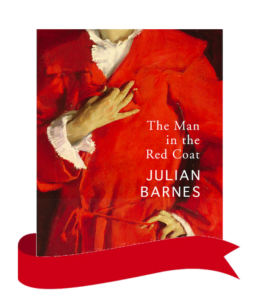
1. The Man in the Red Coat by Julian Barnes (Knopf)
8 Rave • 20 Positive
Read an excerpt from The Man in the Red Coat here
“Barnes is fascinated by facts that turn out to be untrue and by unlikely but provable connections between people and things … While Barnes is concerned in this book to find things that don’t add up, he also relishes the moments when a clear, connecting line can be drawn … Wilde and Pozzi, and perhaps even Montesquiou, admired Bernhardt; Pozzi and James were both painted by Sargent; Wilde and Montesquiou had the same response to the interior décor at the Prousts. Barnes enjoys these connections. But in ways that are subtle and sharp, he seeks to puncture easy associations, doubtful assertions, lazy assumptions. He is interested in the space between what can be presumed and what can be checked.”
–Colm Tóibín ( The New York Review of Books )
2. 150 Glimpses of the Beatles by Craig Brown (Farrar, Straus and Giroux)
12 Rave • 5 Positive • 2 Mixed
“… riveting … This quirky, irreverent book, written in the manner of Mr. Brown’s bestselling Ninety-Nine Glimpses of Princess Margaret (2017), is a kaleidoscope of essays, anecdotes, party lists and personal reminiscence. You might think there was nothing more to be said about the Beatles, but Mr. Brown, a perceptive writer and a gifted satirist, makes familiar stories fresh. Along the way he unearths many fascinating tidbits … a fascinating study of the cultural and social upheaval created by the band … Mr. Brown has a keen eye for absurdist detail … After reading this book I was inspired to listen to them again. I felt just as I had the first time: sheer joy.”
–Moira Hodgson ( The Wall Street Journal )
3. Hidden Valley Road: Inside the Mind of an American Family by Robert Kolker (Doubleday)
14 Rave • 1 Positive
Listen to an interview with Robert Kolker here
“… part multi-generational family saga, part medical mystery, written with an extraordinary blend of rigor and empathy. The reporter in Kolker seeks accuracy above all, but there’s a notable lack of judgment in the book that feels remarkable in light of the stigma long felt by those who have the condition in their families … despite the lonely battles fought by both patients and researchers, Kolker’s Hidden Valley Road is at heart a book about how progress, personal or scientific, can never be achieved on our own.”
–Kate Tuttle ( The Los Angeles Times )
4. Stranger in the Shogun’s City: A Japanese Woman and Her World by Amy Stanley (Scribner)
13 Rave • 1 Positive
“Through Tsuneno, a woman with no remarkable talents or aspirations, Stanley conjures a teeming world … Tsuneno’s restlessness and bad luck make her a rewarding subject … Stanley’s primary materials are letters from Tsuneno and her relatives, which are delightfully frank … The couple squabble, divorce, and remarry, and Tsuneno’s fortunes continue their erratic, fascinating fall and rise and fall … a lost place appears to the reader as if alive and intact.”
–Lidija Haas ( Harper’s )
5. Red Comet: The Short Life and Blazing Art of Sylvia Plath by Heather Clark (Knopf)
11 Rave • 3 Positive • 3 Mixed
Read an excerpt from Red Comet here
“…just as one is wondering whether there can possibly be anything new to be said, here comes Heather Clark’s Red Comet: The Short Life and Blazing Art of Sylvia Plath hurtling down the chute, weighing in at more than 1,000 densely printed pages … as Plath and her complex, much analyzed legacy fade with the passing of successive generations, and her work grows more removed from the cultural mainstream, now seems a prime moment to revive her tale and try to bring all of its elements together … poignant … Clark is at pains to see Plath clearly, to rescue her from the reductive clichés and distorted readings of her work largely because of the tragedy of her ending … there is no denying the book’s intellectual power and, just as important, its sheer readability. Clark is a felicitous writer and a discerning critic of Plath’s poetry … Instead of depleting my interest in Plath, the book stimulated it further … Clark’s talent for scene-painting and inserting the stray but illustrative detail contributes to create a harrowing picture of the narrow confines of the London that Plath had moved to with such high hopes.”
–Daphne Merkin ( The New York Times Book Review )
The Book Marks System: RAVE = 5 points • POSITIVE = 3 points • MIXED = 1 point • PAN = -5 points
- Share on Facebook (Opens in new window)
- Click to share on Twitter (Opens in new window)
- Click to share on Google+ (Opens in new window)
- Click to share on LinkedIn (Opens in new window)
- Click to share on Reddit (Opens in new window)
- Click to share on Tumblr (Opens in new window)
- Click to share on Pinterest (Opens in new window)
- Click to share on Pocket (Opens in new window)

Previous Article
Next article, support lit hub..

Join our community of readers.
to the Lithub Daily
Popular posts.
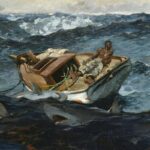
Follow us on Twitter
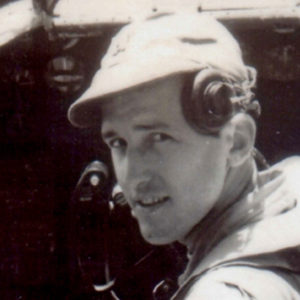
On James Dickey and the Truths That Matter
- RSS - Posts
Literary Hub
Created by Grove Atlantic and Electric Literature
Sign Up For Our Newsletters
How to Pitch Lit Hub
Advertisers: Contact Us
Privacy Policy
Support Lit Hub - Become A Member
Become a Lit Hub Supporting Member : Because Books Matter
For the past decade, Literary Hub has brought you the best of the book world for free—no paywall. But our future relies on you. In return for a donation, you’ll get an ad-free reading experience , exclusive editors’ picks, book giveaways, and our coveted Joan Didion Lit Hub tote bag . Most importantly, you’ll keep independent book coverage alive and thriving on the internet.

Become a member for as low as $5/month
Book Scrolling
Best Book Lists, Award Aggregation, & Book Data
The Best Biography and Memoir Books of 2020 (A Year-End List Aggregation)
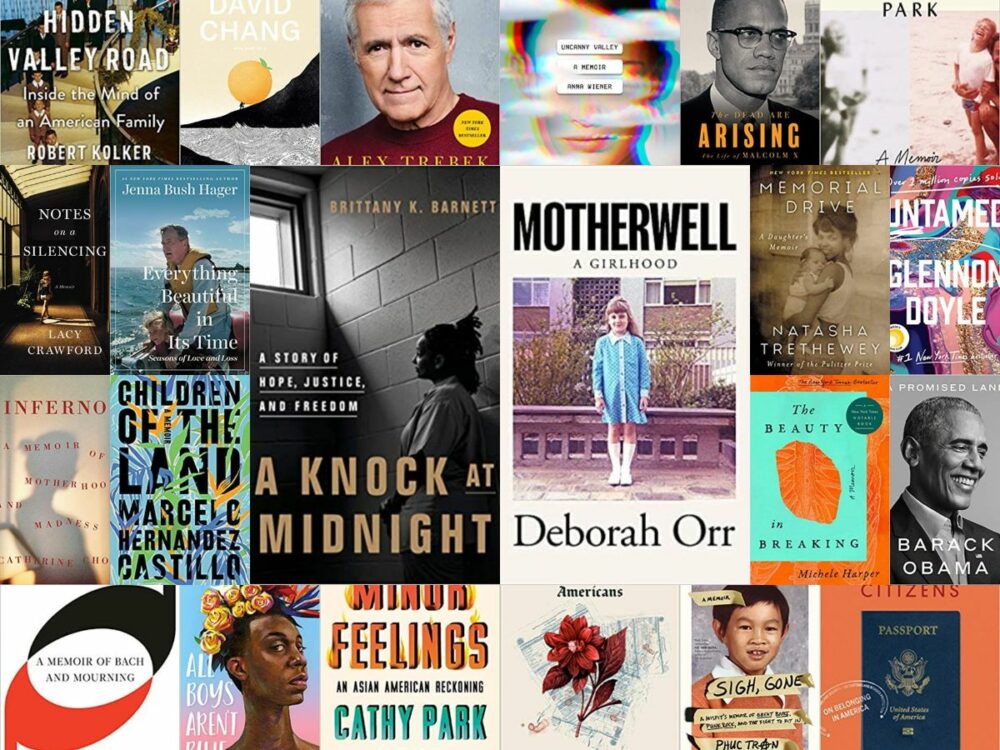
“What are the best Biography and Memoir books released in 2020?” We looked at 160 of the top Biography and Memoir books, aggregating and ranking them so we could answer that very question!
The top 37 books, all appearing on 2 or more “Best Biography and Memoir” book lists, are ranked below by how many times they appear. The remaining 100+ titles, as well as the sources we used, are in alphabetical order on the bottom of the page.
Our other Best Of 2020 Articles:
- The Best Art, Photography, And Coffee Table Books
- The Best AudioBooks
- The Best Biography And Memoir Books
- The Best Graphic Novels And Comics
- The Best Cookbooks
- The Best Fiction Books
- The Best Books (All Categories)
- The Best History Books
- The Best Kids, Children, and Youth Books
- The Best Mystery, Horror, and Thriller Books
- The Best Nonfiction Books
- The Best Poetry Books
- The Best Science And Nature Books
- The Best Science Fiction And Fantasy Books
- The Best Young Adult Books
Previous Years: 2019 , 2018 , 2017 , 2016 , 2015
All titles have been added to a Bookshop list as well!
Happy Scrolling!
Top 37 Best Biography and Memoir Books From 2020
37.) conditional citizens: on belonging in america written bylaila lalami.
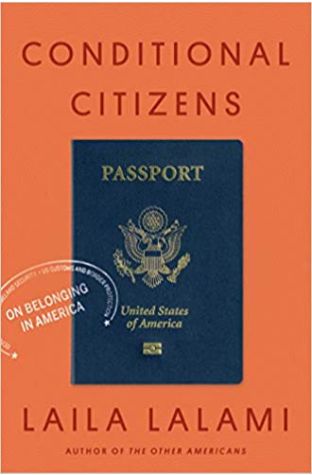
Lists It Appears On:
What does it mean to be American? In this starkly illuminating and impassioned book, Pulitzer Prize-finalist Laila Lalami recounts her unlikely journey from Moroccan immigrant to U.S. citizen, using it as a starting point for her exploration of the rights, liberties, and protections that are tradi
36.) Counterpoint: A Memoir Of Bach And Mourning written byPhilip Kennicott
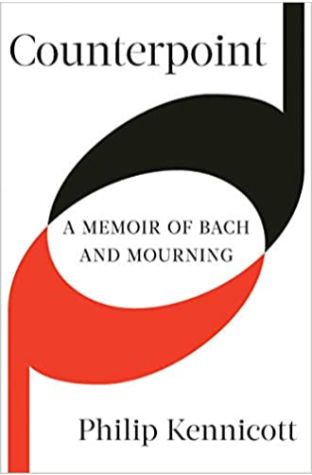
As his mother was dying, Philip Kennicott began to listen to the music of Bach obsessively. It was the only music that didn’t seem trivial or irrelevant, and it enabled him to both experience her death and remove himself from it. For him, Bach’s music held the elements of both joy and despair, life
35.) Dirt: Adventures in Lyon as a Chef in Training, Father, and Sleuth Looking for the Secret of French Cooking written byBill Buford
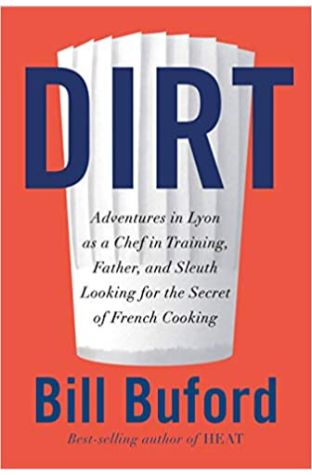
A hilariously self-deprecating, highly obsessive account of the author’s adventures, in the world of French haute cuisine, for anyone whose ever found joy in cooking and eating food with their family–from the author of the best-selling, widely acclaimed Heat. A New York Times Book Review Editors’ C
34.) Everything Beautiful in Its Time: Seasons of Love and Loss written byJenna Bush Hager
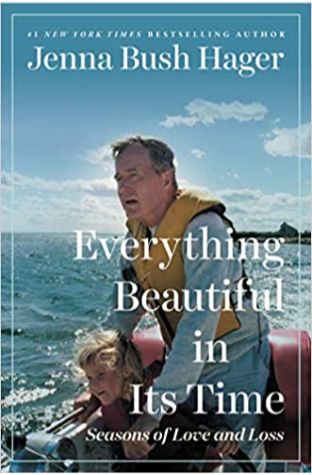
Jenna Bush Hager, the former first daughter and granddaughter, #1 New York Times bestselling author, and coanchor of the Today show, shares moving, funny stories about her beloved grandparents and the wisdom they passed on that has shaped her life.To the world, George and Barbara Bush were America’s
33.) Greenlights written byMatthew McConaughey
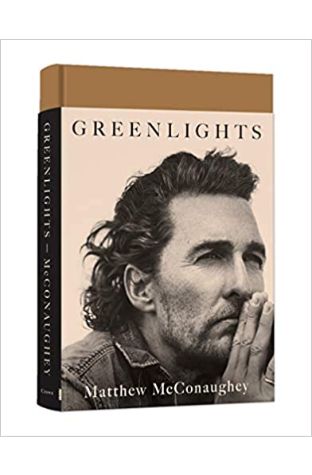
- Worldly Gentleman
#1 NEW YORK TIMES BESTSELLER – From the Academy Award(R)-winning actor, an unconventional memoir filled with raucous stories, outlaw wisdom, and lessons learned the hard way about living with greater satisfaction “Unflinchingly honest and remarkably candid, Matthew McConaughey’s book invites us to g
32.) Hidden Valley Road: Inside the Mind of an American Family written byRobert Kolker
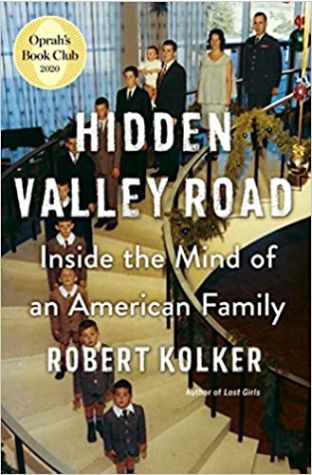
OPRAH’S BOOK CLUB PICK #1 NEW YORK TIMES BESTSELLER The heartrending story of a midcentury American family with twelve children, six of them diagnosed with schizophrenia, that became science’s great hope in the quest to understand the disease. Don and Mimi Galvin seemed to be living the American dre
31.) Hollywood Park: A Memoir written byMikel Jollett
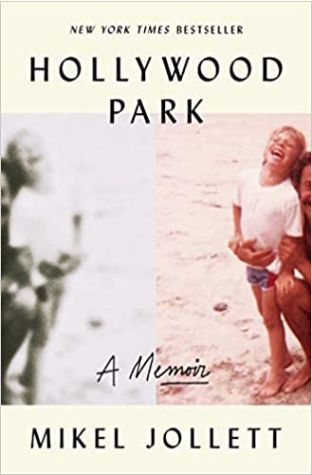
**THE INSTANT NEW YORK TIMES BESTSELLER** “A Gen-X This Boy’s Life…Music and his fierce brilliance boost Jollett; a visceral urge to leave his background behind propels him to excel… In the end, Jollett shakes off the past to become the captain of his own soul. Hollywood Park is a triumph. –O,
30.) Inferno written byCatherine Cho
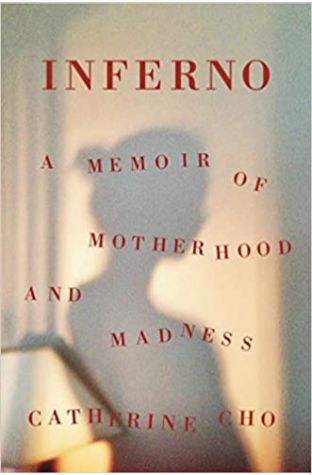
- The Guardian
Inferno is a disturbing and masterfully told memoir, but it’s also an important one that pushes back against powerful taboos. . . –The New York Times Book Review Explosive –Good Morning America Sublime –Bookpage (starred review) When Catherine Cho and her husband set off from London to introduce
29.) Motherwell written byDeborah Orr
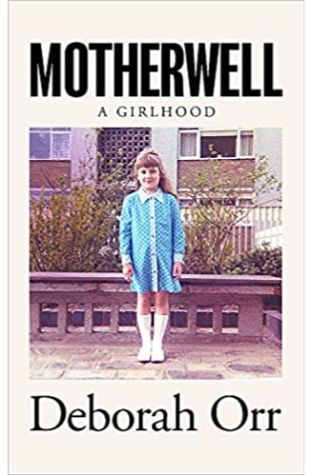
- Waterstones
The final work from the award winning and inspirational journalist, Motherwell interrogates the psychological inheritance that we receive from our parents and how close family ties can prevent us from achieving cherished goals.
28.) My Autobiography of Carson McCullers: A Memoir written byJenn Shapland
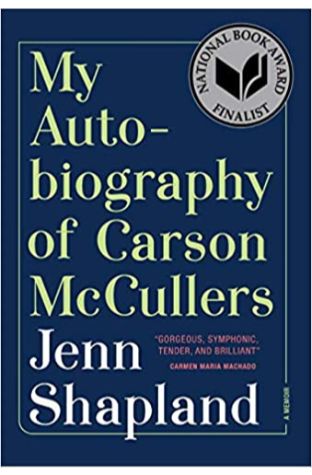
How do you tell the real story of someone misremembered–an icon and idol–alongside your own? Jenn Shapland’s celebrated debut is both question and answer: an immersive, surprising exploration of one of America’s most beloved writers, alongside a genre-defying examination of identity, queerness, me
27.) Once I Was You: A Memoir Of Love And Hate In A Torn America written byMaria Hinojosa
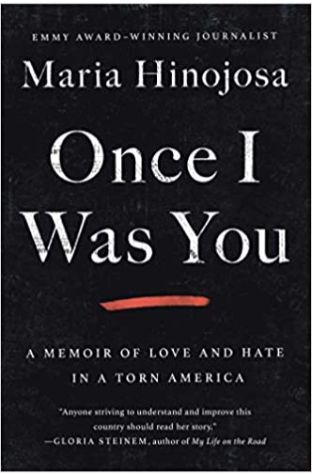
“Anyone striving to understand and improve this country should read her story.” –Gloria Steinem, author of My Life on the Road The Emmy Award-winning journalist and anchor of NPR’s Latino USA tells the story of immigration in America through her family’s experiences and decades of reporting, painti
26.) Open Book written byJessica Simpson
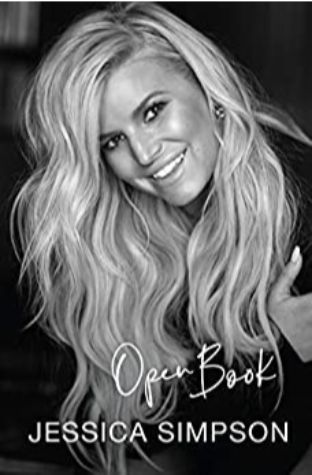
The #1 New York Times BestsellerJessica reveals for the first time her inner monologue and most intimate struggles. Guided by the journals she’s kept since age fifteen, and brimming with her unique humor and down-to-earth humanity, Open Book is as inspiring as it is entertaining.This was supposed to
25.) Recollections of My Nonexistence written byRebecca Solnit
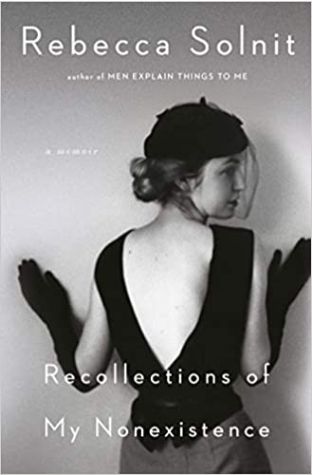
An electric portrait of the artist as a young woman that asks how a writer finds her voice in a society that prefers women to be silent In Recollections of My Nonexistence, Rebecca Solnit describes her formation as a writer and as a feminist in 1980s San Francisco, in an atmosphere of gender violenc
24.) Red Comet: The Short Life and Blazing Art of Sylvia Plath written byHeather Clark
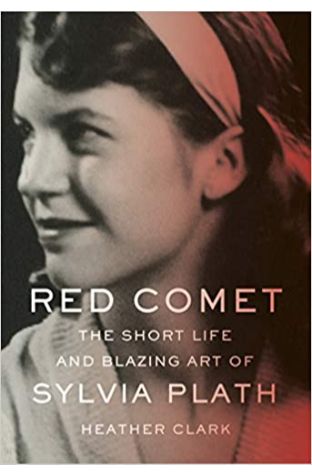
- Barnes & Noble
“Finally, the biography that Sylvia Plath deserves . . . A spectacular achievement.” –Ruth Franklin, author of Shirley Jackson: A Rather Haunted Life The highly anticipated new biography of Sylvia Plath that focuses on her remarkable literary and intellectual achievements, while restoring the woman
23.) The Loneliness of the Long-Distance Cartoonist written byAdrian Tomine
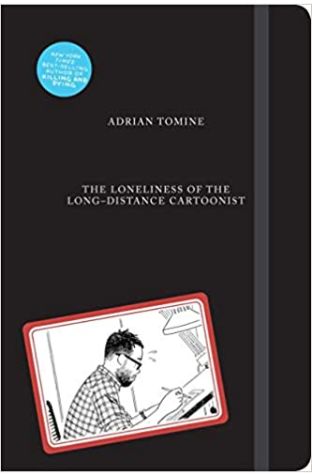
A comedic memoir about fandom, fame, and other embarrassments from the life of a New York Times bestseller What happens when a childhood hobby grows into a lifelong career? The Loneliness of the Long-Distance Cartoonist, Adrian Tomine’s funniest and most revealing foray into autobiography, offers an
22.) The Meaning of Mariah Carey written byMariah Carey
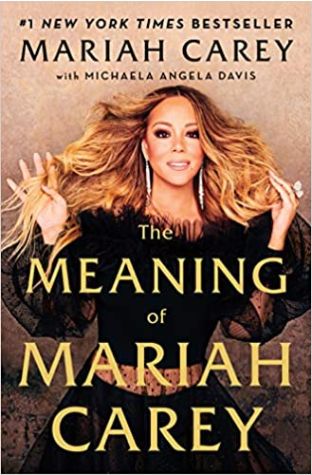
The Instant #1 New York Times Bestseller The global icon, award-winning singer, songwriter, producer, actress, mother, daughter, sister, storyteller, and artist finally tells the unfiltered story of her life in The Meaning of Mariah Carey It took me a lifetime to have the courage and the clarity to
21.) The Wild Silence written byRaynor Winn
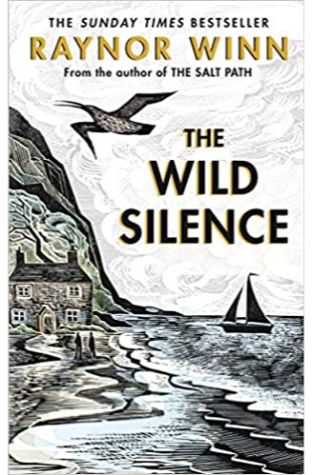
The incredible follow-up to the international bestseller The Salt Path, a story of finding your way back home. Nature holds the answers for Raynor and her husband Moth. After walking 630 homeless miles along The Salt Path, living on the windswept and wild English coastline; the cliffs, the sky and t
20.) The Yellow House written bySarah M. Broom
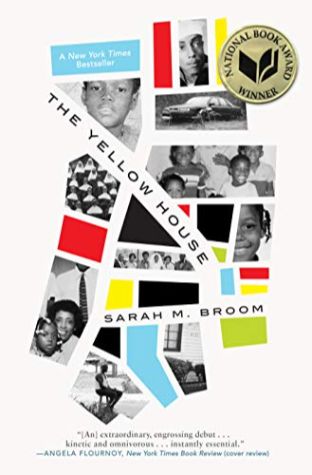
A NEW YORK TIMES BESTSELLER Winner of the 2019 National Book Award in Nonfiction A brilliant, haunting and unforgettable memoir from a stunning new talent about the inexorable pull of home and family, set in a shotgun house in New Orleans East. In 1961, Sarah M. Broom’s mother Ivory Mae bought a sho
19.) Wandering in Strange Lands: A Daughter of the Great Migration Reclaims Her Roots written byMorgan Jerkins
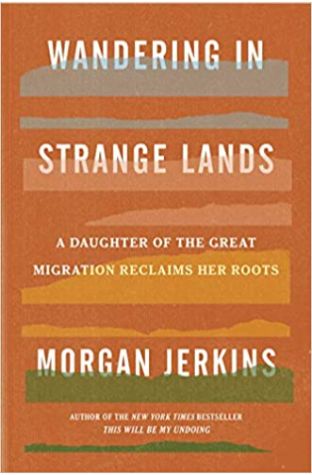
Named one of the most anticipated books of the year by ELLE, Buzzfeed, Esquire, Bitch Media, Good Housekeeping, Electric Literature, Parade and BookRiot “One of the smartest young writers of her generation.”–Book RiotFrom the acclaimed cultural critic and New York Times bestselling author of This W
18.) World Of Wonders: In Praise Of Fireflies, Whale Sharks, And Other Astonishments written byAimee Nezhukumatathil
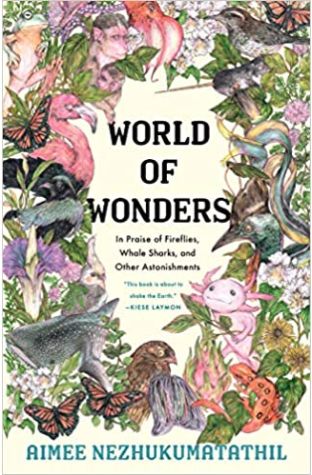
A Kirkus Prize Finalist for Nonfiction An Indie Next Pick, September 2019 A Publishers Weekly “Big Indie Book of Fall 2020” A BuzzFeed Best Book of Fall 2020 A Literary Hub “Most Anticipated Book of 2020 An Esquire Best Book of Fall 2020 A Ralph Lauren Summer Reading Recommendation A Garden & Gun Su
17.) Wow, No Thank You. written bySamantha Irby
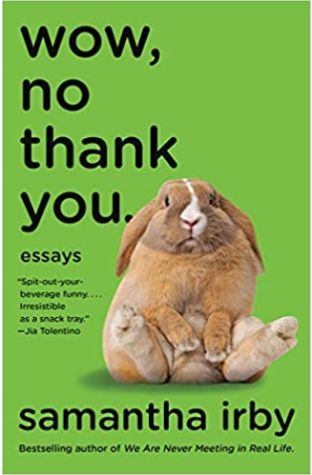
*AN INSTANT #1 NEW YORK TIMES BESTSELLER* “Stay-up-all-night, miss-your-subway-stop, spit-out-your-beverage funny…. irresistible as a snack tray, as intimately pleasurable as an Irish goodbye.” –Jia Tolentino From Samantha Irby, beloved author of We Are Never Meeting in Real Life, a rip-roaring,
16.) Yellow Bird: Oil, Murder, And A Woman’s Search For Justice In Indian Country written bySierra Crane Murdoch
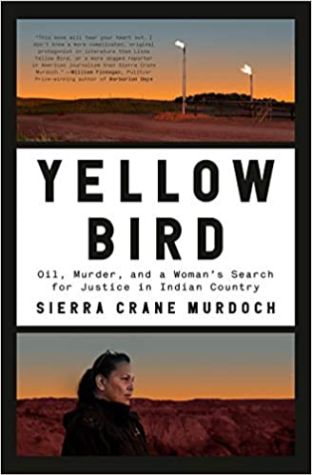
The gripping true story of a murder on an Indian reservation, and the unforgettable Arikara woman who becomes obsessed with solving it–an urgent work of literary journalism. “I don’t know a more complicated, original protagonist in literature than Lissa Yellow Bird, or a more dogged reporter in Ame
15.) A Knock at Midnight: A Story of Hope, Justice, and Freedom written byBrittany K. Barnett
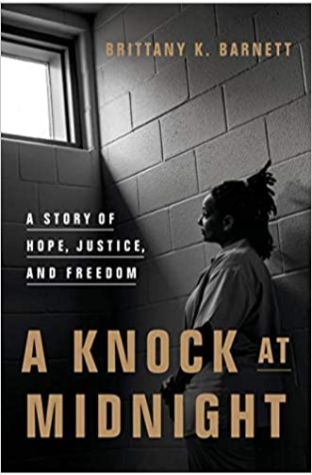
An urgent call to free those buried alive by America’s legal system, and an inspiring true story about unwavering belief in humanity–from a gifted young lawyer and important new voice in the movement to transform the system. “An essential book for our time . . . Brittany K. Barnett is a star.”–Van
14.) All Boys Aren’t Blue: A Memoir-Manifesto written byGeorge M. Johnson
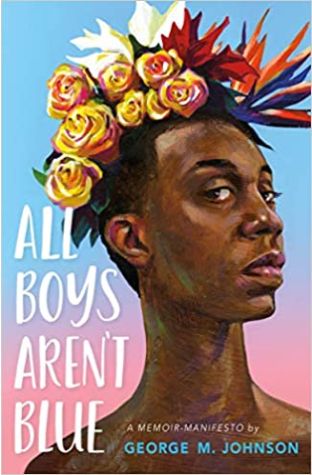
*An Amazon Best Book of the Year optioned for television by Gabrielle Union!* In a series of personal essays, prominent journalist and LGBTQIA+ activist George M. Johnson explores his childhood, adolescence, and college years in New Jersey and Virginia. From the memories of getting his teeth kicked
13.) Children of the Land written byMarcelo Hernandez Castillo
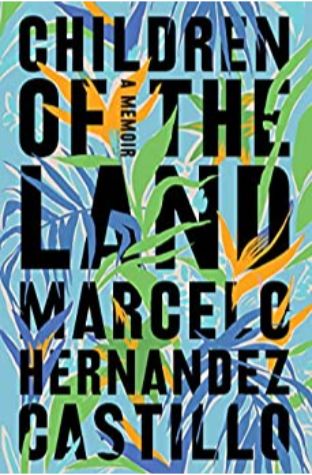
An Entertainment Weekly, The Millions, and LitHub Most Anticipated Book of 2020 This unforgettable memoir from a prize-winning poet about growing up undocumented in the United States recounts the sorrows and joys of a family torn apart by draconian policies and chronicles one young man’s attempt to
12.) Eat a Peach written byDavid Chang
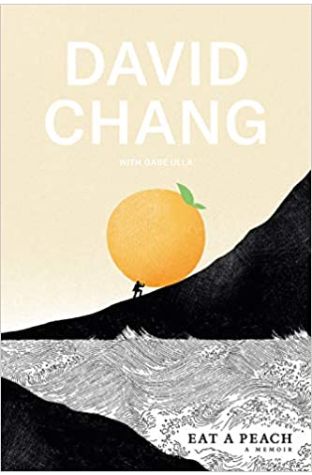
NEW YORK TIMES BESTSELLER – From the chef behind Momofuku and star of Netflix’s Ugly Delicious–an intimate account of the making of a chef, the story of the modern restaurant world that he helped shape, and how he discovered that success can be much harder to understand than failure. “David puts wo
11.) Minor Feelings: An Asian American Reckoning written byCathy Park Hong
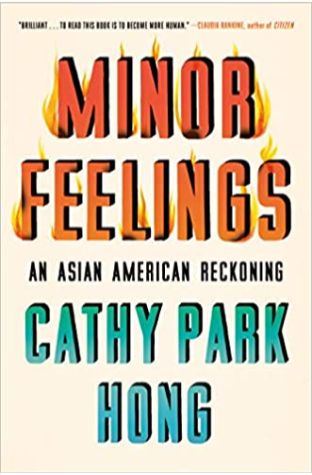
A ruthlessly honest, emotionally charged, and utterly original exploration of Asian American consciousness and the struggle to be human “Brilliant . . . To read this book is to become more human.”–Claudia Rankine, author of Citizen Poet and essayist Cathy Park Hong fearlessly and provocatively blen
10.) Notes on a Silencing: A Memoir written byLacy Crawford
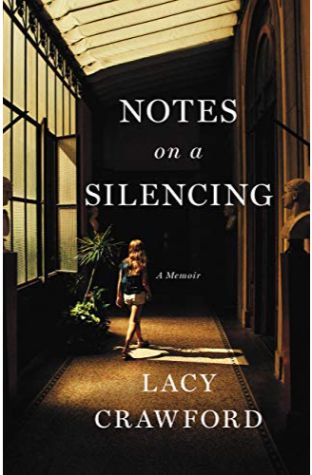
A “powerful and scary and important and true” memoir (Sally Mann, Carnegie Medal-winning author of Hold Still) of a young woman’s struggle to regain her sense of self after trauma, and the efforts by a powerful New England boarding school to silence her—at any cost. A New York Times Book Review Ed
9.) Sigh, Gone: A Misfit’s Memoir of Great Books, Punk Rock, and the Fight to Fit In written byPhuc Tran
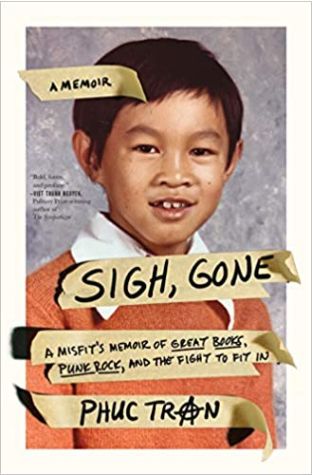
For anyone who has ever felt like they don’t belong, Sigh, Gone shares an irreverent, funny, and moving tale of displacement and assimilation woven together with poignant themes from beloved works of classic literature. In 1975, during the fall of Saigon, Phuc Tran immigrates to America along with h
8.) The Answer Is…: Reflections on My Life written byAlex Trebek
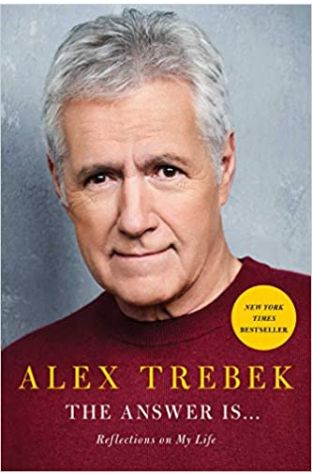
A RECOMMENDED SUMMER READ BY THE NEW YORK TIMES, USA TODAY, TIME, AND NEWSWEEK Longtime Jeopardy! host and television icon Alex Trebek reflects on his life and career. Since debuting as the host of Jeopardy! in 1984, Alex Trebek has been something like a family member to millions of television viewe
7.) The Beauty in Breaking: A Memoir written byMichele Harper
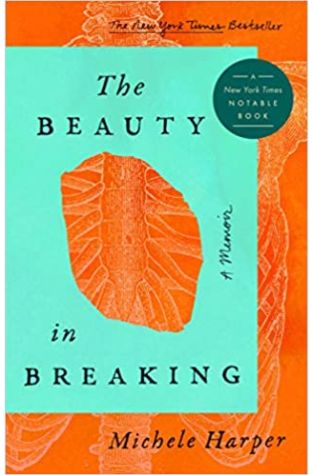
The New York Times Bestseller “Riveting, heartbreaking, sometimes difficult, always inspiring.” –The New York Times Book Review As seen/heard on Fresh Air, The Daily Show with Trevor Noah, NBC Nightly News, MSNBC, Weekend Edition, and more An emergency room physician explores how a life of service
6.) The Dead Are Arising: The Life of Malcolm X written byLes Payne
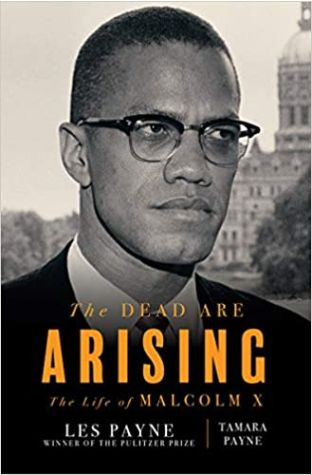
Finalist — National Book Award for Nonfiction – Excerpted in The New Yorker – Longlisted — Andrew Carnegie Medal for Excellence in Nonfiction – New Books to Watch Out for in October — New York Times – Best Books of Fall 2020 — O, the Oprah Magazine, The Week, St. Louis Post-Dispatch – Best New B
5.) The Undocumented Americans written byKarla Cornejo Villavicencio
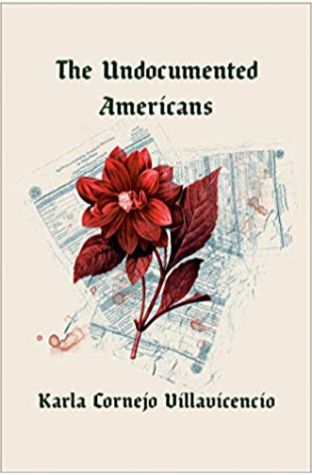
FINALIST FOR THE NATIONAL BOOK AWARD – One of the first undocumented immigrants to graduate from Harvard reveals the hidden lives of her fellow undocumented Americans in this deeply personal and groundbreaking portrait of a nation. “Karla’s book sheds light on people’s personal experiences and allow
4.) Uncanny Valley: A Memoir written byAnna Wiener
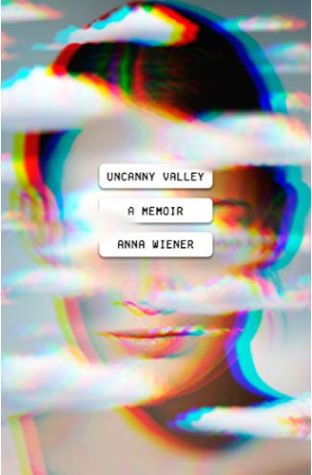
A NEW YORK TIMES BESTSELLER A definitive document of a world in transition: I won’t be alone in returning to it for clarity and consolation for many years to come. –Jia Tolentino, author of Trick Mirror: Reflections on Self-Delusion A New York Times Book Review Editors’ Choice and a January 2020 In
3.) A Promised Land written byBarack Obama
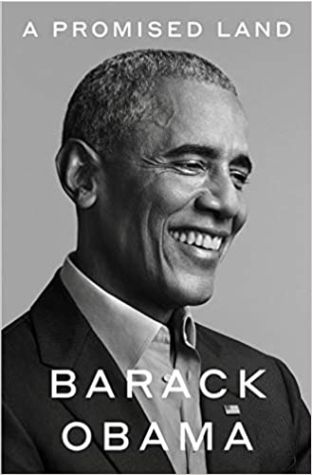
A riveting, deeply personal account of history in the making–from the president who inspired us to believe in the power of democracy In the stirring, highly anticipated first volume of his presidential memoirs, Barack Obama tells the story of his improbable odyssey from young man searching for his
2.) Untamed written byGlennon Doyle
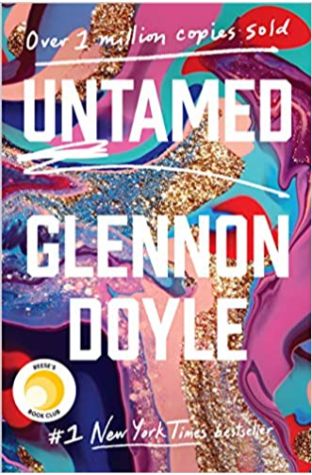
#1 NEW YORK TIMES BESTSELLER – “Packed with incredible insight about what it means to be a woman today.”–Reese Witherspoon (Reese’s Book Club x Hello Sunshine Book Pick) In her most revealing and powerful memoir yet, the activist, speaker, bestselling author, and “patron saint of female empowerment
1.) Memorial Drive: A Daughter’s Memoir written byNatasha Trethewey
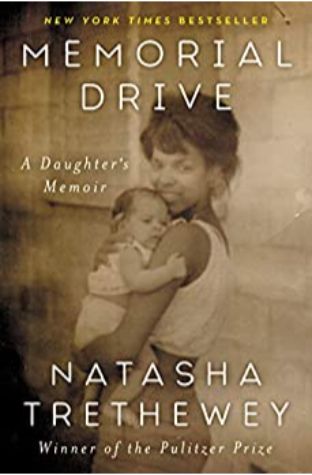
An Instant New York Times BestsellerA chillingly personal and exquisitely wrought memoir of a daughter reckoning with the brutal murder of her mother at the hands of her former stepfather, and the moving, intimate story of a poet coming into her own in the wake of a tragedy At age nineteen, Natasha
The 100+ Additional Best Biography and Memoir Books Released In 2020
13 best biography and memoir book sources/lists, related posts.
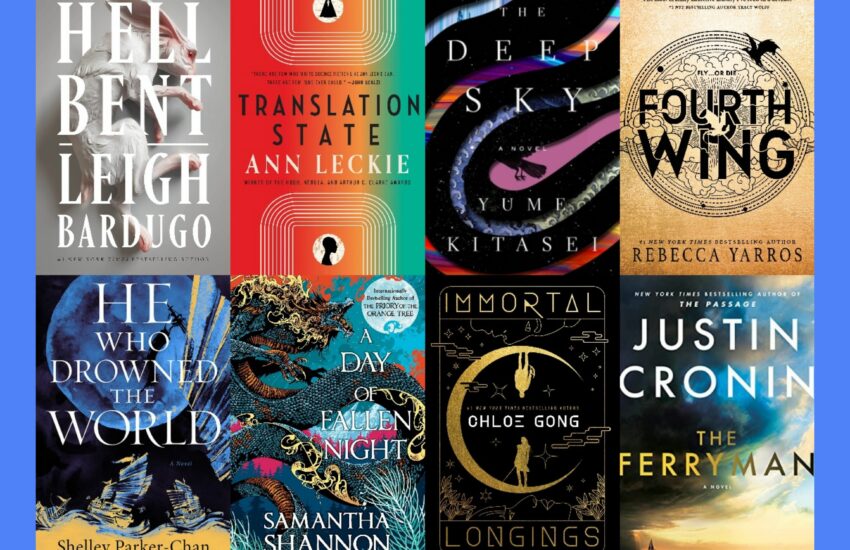
The Best Books of 2023 – Science Fiction And Fantasy (A Year-End List Aggregation)
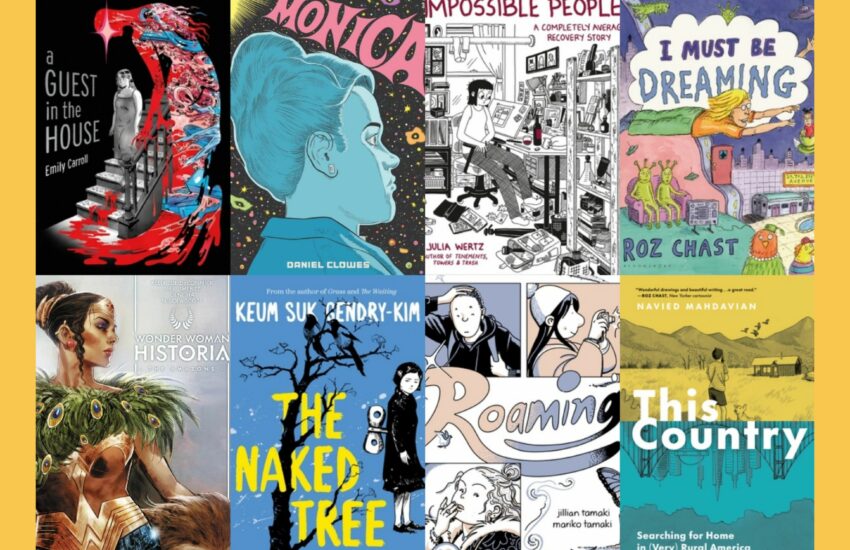
The Best Books of 2023 – Graphic Novels And Comics (A Year-End List Aggregation)
- NONFICTION BOOKS
- BEST NONFICTION 2023
- BEST NONFICTION 2024
- Historical Biographies
- The Best Memoirs and Autobiographies
- Philosophical Biographies
- World War 2
- World History
- American History
- British History
- Chinese History
- Russian History
- Ancient History (up to 500)
- Medieval History (500-1400)
- Military History
- Art History
- Travel Books
- Ancient Philosophy
- Contemporary Philosophy
- Ethics & Moral Philosophy
- Great Philosophers
- Social & Political Philosophy
- Classical Studies
- New Science Books
- Maths & Statistics
- Popular Science
- Physics Books
- Climate Change Books
- How to Write
- English Grammar & Usage
- Books for Learning Languages
- Linguistics
- Political Ideologies
- Foreign Policy & International Relations
- American Politics
- British Politics
- Religious History Books
- Mental Health
- Neuroscience
- Child Psychology
- Film & Cinema
- Opera & Classical Music
- Behavioural Economics
- Development Economics
- Economic History
- Financial Crisis
- World Economies
- Investing Books
- Artificial Intelligence/AI Books
- Data Science Books
- Sex & Sexuality
- Death & Dying
- Food & Cooking
- Sports, Games & Hobbies
- FICTION BOOKS
- BEST NOVELS 2024
- BEST FICTION 2023
- New Literary Fiction
- World Literature
- Literary Criticism
- Literary Figures
- Classic English Literature
- American Literature
- Comics & Graphic Novels
- Fairy Tales & Mythology
- Historical Fiction
- Crime Novels
- Science Fiction
- Short Stories
- South Africa
- United States
- Arctic & Antarctica
- Afghanistan
- Myanmar (Formerly Burma)
- Netherlands
- Kids Recommend Books for Kids
- High School Teachers Recommendations
- Prizewinning Kids' Books
- Popular Series Books for Kids
- BEST BOOKS FOR KIDS (ALL AGES)
- Ages Baby-2
- Books for Teens and Young Adults
- THE BEST SCIENCE BOOKS FOR KIDS
- BEST KIDS' BOOKS OF 2023
- BEST BOOKS FOR TEENS OF 2023
- Best Audiobooks for Kids
- Environment
- Best Books for Teens of 2023
- Best Kids' Books of 2023
- Political Novels
- New History Books
- New Historical Fiction
- New Biography
- New Memoirs
- New World Literature
- New Economics Books
- New Climate Books
- New Math Books
- New Philosophy Books
- New Psychology Books
- New Physics Books
- THE BEST AUDIOBOOKS
- Actors Read Great Books
- Books Narrated by Their Authors
- Best Audiobook Thrillers
- Best History Audiobooks
- Nobel Literature Prize
- Booker Prize (fiction)
- Baillie Gifford Prize (nonfiction)
- Financial Times (nonfiction)
- Wolfson Prize (history)
- Royal Society (science)
- Pushkin House Prize (Russia)
- Walter Scott Prize (historical fiction)
- Arthur C Clarke Prize (sci fi)
- The Hugos (sci fi & fantasy)
- Audie Awards (audiobooks)
Make Your Own List
The Best Books of 2021
The best biographies: the 2021 nbcc shortlist, recommended by elizabeth taylor.

Stranger in the Shogun's City: A Japanese Woman and Her World by Amy Stanley
Elizabeth Taylor , the author, critic and chair of the National Book Critics' Circle biography committee, discusses their 2021 shortlist for the title of the best biography—including a revelatory new book about the life of Malcolm X, a group biography of artists in the 1960s, and a book built from a cache of letters written in Japan's shogun era.
Interview by Cal Flyn , Deputy Editor
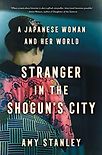
The Price of Peace: Money, Democracy, and the Life of John Maynard Keynes by Zachary D. Carter
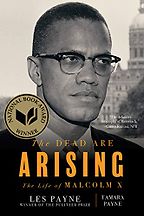
The Dead Are Arising: The Life of Malcolm X by Les Payne & Tamara Payne
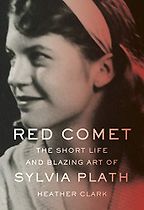
Red Comet: The Short Life and Blazing Art of Sylvia Plath by Heather Clark
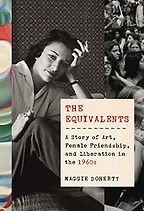
The Equivalents: A Story of Art, Female Friendship, and Liberation in the 1960s by Maggie Doherty

1 Stranger in the Shogun's City: A Japanese Woman and Her World by Amy Stanley
2 the price of peace: money, democracy, and the life of john maynard keynes by zachary d. carter, 3 the dead are arising: the life of malcolm x by les payne & tamara payne, 4 red comet: the short life and blazing art of sylvia plath by heather clark, 5 the equivalents: a story of art, female friendship, and liberation in the 1960s by maggie doherty.
W elcome back to Five Books! This is the third year in a row that we’ve come together to discuss the National Book Critics Circle finalists for biography. Before we look at the 2021 shortlist, could you reflect on the qualities that unite the best biographies?
Biographies have a special antenna for what’s happening in the world. This year, three excellent biographies about living men dealt directly with politics that provided a bit of a refuge from current personalities but, at the same time, elucidated the present day: His Very Best: Jimmy Carter, A Life by Jonathan Alter, The Man Who Ran Washington: The Life and Times of James A. Baker III by Peter Baker and Susan Glasser and Man of Tomorrow: The Restless Life of Jerry Brown by James Newton.
Get the weekly Five Books newsletter
The best biographies adapt form to subject—they come from an angle, tell the story of a group, focus on a moment. They can do this because they inhabit the people and times about which they are writing. Most of all, readers respond to a special alchemy of subject and biographer, and while I think Janet Malcolm is brilliant, I don’t quite endorse her idea that the biographer at work “is like the professional burglar.”
Biographies often have to contend with or respond to how their subject or subjects have been defined by previous works of biography. Of the books we’re looking at here, that’s certainly true of the Plath and Malcolm X biographies. Keynes too.
To some extent, with the exception of Amy Stanley, each biography finalist wrestles with the interpretations of previous biographies. Heather Clark responds more deliberately in Red Comet because she is contending not only with Plath, but the myth of Plath. Les Payne challenges interpretations of biographies about Malcolm X, including the Pulitzer Prize-winning biography by Manning Marable. As an investigative reporter, Payne not only challenges interpretations but also corrects the historic record and Malcom X’s own autobiography. Biographers live with their subjects, and the shadows of their subjects.
Shall we start off by discussing the first of your 2021 finalists for the title of best biography? This is Amy Stanley’s Stranger in the Shogun’s City: A Japanese Woman and Her World. It’s very much a life-and-times book, as it uses the story of a single woman to offer a sweep of 19th-century Japanese society.
You have that just right: Amy Stanley tells the story of how Edo became Tokyo through the life of Tsuneno, daughter of a Buddhist priest in a rural province at a moment that Japan ’s transformation is taking root.
Just to be clear for those who don’t know: the city we call Tokyo was known as ‘Edo’ until 1869.
Tsuneno attends school, learns to sew and dreams of the big city. At age 12, she is married off and dispatched to an even more remote province. Three failed marriages later, she literally walks for weeks on a horrific journey to reach Edo where, impoverished and degraded, she proves to be a skilful survivor, finding a form of independence to which she clings, even after she marries a louche of a samurai . She dies in 1853, just before Commodore Perry’s arrival in Japan.
She was remarkably resilient and tenacious, but Tsuneno was also rebellious, troublesome and not entirely likeable. And her death brought me to tears. Stanley renders Tsuneno’s messy life, unique struggles and the quotidian particulars of her world so richly that this Japanese woman from another era becomes achingly human and resonant. Tsuneno emerges as a sort of everywoman who transcends time and is more than a vessel to represent Edo’s transformation into Tokyo and Japan’s path to power.
“It’s a biography of a woman, but also a portrait of what would become a great world city”
Stanley, an historian of early and modern Japan, happened to find a letter from Tsuneno hidden in an archive online which led her to Japan and the discovery of a rich archive of letters written by Tsuneno which had been saved by her family, along with a trove of documents. Stanley is quite understated about this dedication and accomplishment. As she explains in the book, she reads and speaks Japanese, but the brushstrokes of 200 years ago posed quite a challenge. Stanley photographed everything from the archive, and painstakingly translated it all to create a narrative of Tsuneno’s life through her very detailed and personal letters.
Stanley has recovered a lost world. Drawing on her knowledge of the history, Stanley contextualizes the letters, which enhances their power. So, it’s a biography of a woman, but also a portrait of what would become a great world city and its evolving culture.
I’m really interested in the decision Stanley has made to focus on a subject who is herself not famous or historically significant. I guess by its nature the book gives us insight into what it was like to be a ‘normal’ person during that period, in that society.
This biography is such a sharp reminder of the importance of archives. I fear that we will soon face a future in which we will have to rely on redacted government documents. The victors will dominate the narrative, and the stories of the powerless will vanish unless we work to preserve them. With email replacing letters and so much news disappearing online, we need a coordinated effort to create new archives, especially for those who may not have reached a moment of fame, or infamy.
Do you think this would have been a difficult book to find a publisher for, because of Stanley’s low-key choice of subject?
I try not to look at the publishing history of books as they come up for awards and, instead, focus on the book itself. So I don’t know the particulars here, but kudos to Scribner on this one. My sense, though, is that there’s increasing enthusiasm to recover forgotten, overlooked figures and histories and that Stanley’s book could find a wide audience.
Finding that universality in specificity. Well, let’s move on to Zachary Carter’s The Price of Peace: Money, Democracy, and the Life of John Maynard Keynes . This is much closer to the ‘great man’ style of biography that you alluded to earlier. How one person impacts the world, rather than how the world impacts upon the person. The Guardian called this “a solid, sombre intellectual biography”—does that sound right to you? Why is it one of the best biographies of 2021?
I’m not sure that the ‘Bloomsberries,’ as Virginia Woolf named them, were sombre in Carter’s vivid depictions! The Price of Peace is a biography of an eminent, visionary economist, the story of how John Maynard Keynes came to his revolutionary ideas, refined and advanced them through his life and how they came to dominate economic thought.
Carter makes a bold move as a biographer: Keynes dies in 1946 on page 390, but Carter gallops on for a good 250 more pages, tracing the battles over Keynesianism as they evolved through the New Deal, McCarthyism and the 2008 financial crisis. Carter captures the ideological warfare between luminary intellectuals like James K. Galbraith and Arthur Schlesinger and even extends to the monumental 2015 National Book Critics Circle finalist Thomas Piketty’s Capital in the Twenty-First Century .
We spoke to Thomas Piketty quite recently.
Carter begins his book with Keynes in midlife, as he’s falling in love with the Russian ballerina who became his wife, a critical turning point that informed his philosophy—and illustrates Keynes as a tangle of paradox. He was a pacifist who advocated for war. He was married to a woman but had serious amorous relationships with men. He’s so interesting, and was, at that time, quite radical. People are still debating his ideas, he was really ahead of his time.
Clearly Keynes is comfortable with contradiction and his ideas are often counterintuitive—the notion, as Paul Krugman put it: “Your income is my expense and my income is your expense.” Spending more to get out of a financial depression continues to be debated. Back to your question about intellectual biography, Carter’s book illustrates that ideas originate in lived experience, and he illuminates Keynes’s experience and shows how it took root.
One may think of Keynes as an economist, but Keynesianism is much more than that—he has views on war, art, culture and a vision of fairness. Keynes had a dream of a fairer and more fulfilling life for all. Carter’s writing about economic theory is so lucid, so colourful, and such a pleasant surprise for me.
The afterlife of Keynesian thinking is interesting, how it continues to thread through contemporary economics .
Indeed, that is right. We can see the drama playing out today in America with the intense battles over President Joe Biden’s Covid stimulus and relief bill. Carter seems to suggest that Keynes would have been frustrated by growing inequality and that his radical vision withered, leaving us with the question of whether good ideas can triumph on their own. The question Carter poses was: did Keynes believe that good ideas would triumph on their own? One comes away from this book thinking that Keynesianism is not a school of thought as much as a spirit of radical optimism.
And how about the Bloomsbury Group? I’m sorry, I’ll always be interested in this. Does it goes into salacious detail?
Perhaps not salacious but absolutely interesting to read about. At Cambridge Lytton Strachey was impressed by Keynes’s “active brain” and recruited him to the group although he was just a freshman. Keynes and Strachey were lovers but it was a rivalrous friendship, and Keynes made a habit of poaching Strachey’s lovers. He wasn’t an artist, as others were in Bloomsbury; Keynes expressed feelings of inferiority and Strachey and Clive Bell sneered at his aesthetic judgement.
Keynes’s time with the Bloomsbury set, Carter argues, was a formative experience in which Keynes became skeptical of rules of conduct and edicts from the ruling elite and developed political sympathies and keen interest in the Liberal Party. His relations with the Bloomsbury crowd seemed to provide him with a keen understanding of the post- World War One world.
Support Five Books
Five Books interviews are expensive to produce. If you're enjoying this interview, please support us by donating a small amount .
Let’s talk about the Payne book next. This is The Dead Are Arising: The Life of Malcolm X, which is third on our shortlist for the 2021 title of best biography. It’s the result of three decades of research by Les Payne and his daughter Tamara, who completed it after his death. It’s won the National Book Award, and was one of the New York Times’s ‘notable books’ of last year. So a landmark piece of work.
Landmark indeed, and brave. It follows Malcolm Marable’s Malcolm X: A Life of Reinvention which won the Pulitzer Prize for History in 2012 and The Autobiography of Malcolm X by Alex Haley and Malcolm which was published in 1965 to great acclaim.
The Payne biography is a rebuke to those who insist that if a subject has won the attention of one biographer, it is off the market to others. New evidence can be unearthed, existing evidence can be challenged or lead to other inquiries. Perspective, structure, and expression matter. Payne has elevated oral history and narrative to an art form and excavates Malcolm X’s origin story, from his birth as Malcolm Little in Omaha, Nebraska to his assassination in the Audubon Ballroom in New York City’s Washington Heights. Payne captures the winding arc of Malcom’s life through the death of his father—which Malcolm believed to be nefarious, and Payne disproves—and the confinement of his mother in a psychiatric hospital. As a troubled adolescent, he landed in prison while his brothers, who Payne interviewed, found their way to the Nation of Islam. Malcolm joined them, and transformed into an evangelist for Black self-respect and a fierce critic of white America.
“The Paynes did not simply visit archives, they created the archive”
It is remarkable that the Paynes did not simply visit archives, they created the archive through thousands of eyewitness reports and personal documents. They went way beyond the declassified FBI files and secondhand stories of the legend of Malcolm’s transformation. Payne may have drawn on his journalistic skills to build this biography on firsthand accounts and oral history, but he also worked as a historian to contextualize these contradicting accounts and synthesize them into an extraordinary narrative.
Payne writes the 20th-century American history of the Nation of Islam and situates Malcom in these ideological battles— through his parents, who adhered to Marcus Garvey’s philosophy of self-reliance, Black nationalism and Pan-Africanism; through activist intellectuals like W E B Du Bois and William Monroe Trotter. Payne explains Malcolm X’s route to Elijah Muhammad and the Nation of Islam, including his break from them which led to his assassination. Payne shows his experience as an investigative reporter, especially regarding the recovery of details involving the plot to kill Malcolm.
This book is often discussed as a counterpoint to that explosive biography by Marable, but it offers its own revelations. The current leader of the Nation of Islam admits in an interview that he might have been complicit in the murder, for one.
Indeed. Payne confirms that the assassination order came directly from Muhammad’s headquarters in Chicago to the gunmen. We also learn that Malcolm, on the direction of Elijah Muhammad, met with Ku Klux Klan leaders in 1961 about a land deal. It turned out that the Klansmen were really set on the assassination of Martin Luther King, which led to Malcolm’s break with the Nation of Islam.
And this must be one of the benefits of working on something for so long. Let’s turn to the next book on our 2021 shortlist of the best biographies. Red Comet: The Short Life and Blazing Art of Sylvia Plath by Heather Clark. I’m excited about this book, but I suppose that’s because I know a lot about Sylvia Plath already. Her life is relatively well-trodden ground, not only thanks to previous biographies but the writing of Plath herself. Is there room for a new Plath biography? What can this book add?
Personally, I share your enthusiasm about all matters Plath. As a critic, let me say that Clark not only unearths new evidence about Plath’s life but also brings a fresh, subtle and nuanced critical perspective to her work. Plath is mythologised and pathologised; she has come to be seen as an icon or a victim, a “high priestess of poetry, obsessed with death,” as Clark writes. What Clark does here is recover Sylvia Plath as an aesthetically accomplished, important poet.
Clark discovered letters Plath sent to her psychiatrist, delved into the Plath family history (including her father’s FBI file and grandmother’s institutionalization), found a portion of Plath’s last novel, and used her unpublished diaries and creative work as well as police, hospital and court records. She also drew from an archive that opened in 2020 which contained scores of interviews with Plath’s contemporaries in the 1970s for an uncompleted biography.
From the start, Clark is clear in her intention to reposition Plath as one of the most important American writers of the 20th century. I was skeptical initially, because the biography weighs in at 1118 pages. Well, 937 pages without notes.
But after the prologue, I was hooked. Clark nestles details so deftly in flowing narrative prose and successfully positions Plath in the era. It’s literally a heavy book, but Clark writes with a light touch, evoking Plath’s psychological and poetic landscape as well as her social milieu. Well known now as the wife of Ted Hughes, Plath emerges so clearly in her other relationships. Clark vivifies Plath not only as a mother, but also a daughter who was just eight years old when her father died, leaving her to be raised by her single mother.
Plath grew up at a harrowing and difficult time for German immigrants in America, during and before the Second World War . Plath’s father Otto was repeatedly investigated and eventually detained by the FBI but, as Clark shows, he renounced his German citizenship in 1926 and watched Hitler’s rise with trepidation.
It seems unfair that he’s likened to a Nazi soldier in her famous poem ‘Daddy’, then?
‘Daddy’ runs through the biography and Clark tracks interpretations and it’s almost as if those reveal more about the perceiver than the poem. For some, ‘Daddy’ is a rallying cry for feminists, others believe it reflects Plath’s youth and others damn it for appropriating the Holocaust . Clark makes clear that Plath’s father was a committed pacifist. In addition to his German heritage, Clark suggests that as a professor and scientist, he embodied patriarchal authority and a kind of imperial aggression just as resentment of her husband was boiling. There’s also an argument that the poem is based on an entirely different person, her friend’s father who abandoned his family to join the fascist Blackshirts.
Clark reveals Plath wrestling with ‘Daddy’ in successive drafts, with one reading like an elegy, and others more resilient and forgiving. The poem’s placement in Ariel , published posthumously and out of her control, possibly shifted its meaning.
I could talk about ‘Daddy’ all day but would much rather read about it in Clark’s biography! Clark argues that Plath’s aesthetic impulse was more surrealist than confessional and that ‘Daddy’ illustrated that Plath had her finger on the pulse of contemporary poetry.
The thing I find most interesting about Plath is the way she embodies that pressure-cooker atmosphere of girlhood and early womanhood—the twin pressures to be feminine, and yet to strive intellectually. They are not quite opposites, but one interferes with the action of the other. I think that’s why Plath became a cultural phenomenon, a figurehead for troubled young women.
As a reader, I could hear Plath’s mother preaching: “excel, but conform.” While Sylvia Plath is known for her death, Clark shows how hard she worked, how many poems she sent out before she found success. Clark reads Plath’s juvenile short stories and poetry really seriously, and asks questions: how did she get to be who she was? Clark recognizes Plath’s incredible ambition and dedication to her work.
So does Clark succeed in her stated aim of repositioning Plath as one of the most important writers of the 20th century?
Some of the social pressures that Plath was contending with will be common to those faced by some of the women in the final book on our list of the best biographies of 2021. This is The Equivalents: A Story of Art, Female Friendship, and Liberation in the 1960s , by Maggie Doherty. It’s a group biography, and there’s an excerpt available on the New York Times website for those who want to try before they buy.
First, that sly, smart title. Radcliffe College President Mary Bunting had the brilliant idea to support “intellectually displaced women.” By that, she meant women whose ambitions as artists and intellectuals had been thwarted by gender expectations and the demands of domesticity, marriage and motherhood. The College’s Institute for Independent Study would provide hefty stipends, private offices and its resources to a group of women who had “either a doctorate or its equivalent” in creative achievement. Bunting described it as her “messy experiment.”
In The Equivalents , Maggie Doherty captures that glorious mess. She focuses on five women artists: poets Anne Sexton and Maxine Kumin, sculptor Marianna Pineda, painter Barbara Swann from the East Coast and fiction writer Tillie Olsen, mother of four from San Francisco who had been a community organizer and aspired to write the great proletarian novel. None of them had PhDs; they nicknamed themselves ‘the Equivalents’.
The Equivalents is magnificent social history, a collective snapshot of an overlooked moment in American feminism; we meet these women crossing the bridge between first and second wave feminism. The institute provided them with the rooms of their own to which Virginia Woolf had aspired, but it turned out they needed more of E M Forster’s edict to “only connect.”
With insight and subtlety, Doherty explains the alchemy of solitude and community as “ideal conditions for artistic growth.” They read one another’s work and collaborated on projects. The deep creative bond between the charismatic poets—Sexton and Kumin—provides a narrative backbone. Their friendships revealed the importance of the collective, and how they really did give and draw strength from one another. The idea of five women artists being freed—receiving money and office space and affiliation from Radcliffe was really radical and groundbreaking.
Olsen was, in many ways, the outlier of the group. In a crowd of upper-class Boston and New England women, Olsen was from the West Coast, not at all part of the eastern intelligentsia. While others used stipends to pay for nannies and domestic help, Olsen often had to borrow money. She was sort of a Marxist and emphasized that women—and all people—could be creative and fulfil their promise.
How refreshing. It’s tiring to constantly see histories or biographies in which women apparently have no inner lives—or develop only in relation to, or thanks to, men. A group biography which examines not only the intellectual concerns of women, but their interaction with one another, feels an important corrective.
A very important corrective.
I wonder if we should institute some form of the Bechdel test for books. Do you know that term? To pass the test, a film simply has to contain a scene in which women talk to each other about something, anything, except a man.
I suspect that the women of The Equivalents found Radcliffe a turning point where they could do that. But, knowing that Betty Friedan was an early visitor, they also talked about equity – and the “problem that had no name.” This was a space where a woman could discover that the wandering, absent husband, or the imperious male colleague was not her problem alone. As Doherty writes, these shared confidences could lead a woman to realize that “there was nothing wrong with her, but there might be something wrong with the world.”
I would just raise the ante on the Bechdel test and suggest that a book must contain a scene in which mothers talk to one another about anything other than their children!
Doherty captures so well the intensity and vicissitudes of these relationships. One can feel moments when Sexton’s needs are too much for Kumin, for instance. Then there’s the electricity of collaboration between mediums, for instance Swann’s artwork appears on the poets’ book covers. The Equivalents arrived as “well-behaved women” and may not have thought of themselves as feminists, but their determined efforts at self-expression radiated out into the world and laid the groundwork for revolution. In closing her sublime book, Doherty relates that when Bunting was asked why her “messy experiment” was so successful, she modestly responded: “We spoke to their condition.”
Doherty closes her marvellous book with a call to arms: “Women today live under new conditions. It is time for another messy experiment and for a new group of women to speak.”
March 19, 2021
Five Books aims to keep its book recommendations and interviews up to date. If you are the interviewee and would like to update your choice of books (or even just what you say about them) please email us at [email protected]
Elizabeth Taylor
Elizabeth Taylor is a co-author of American Pharaoh: Mayor Richard J. Daley; His Battle for Chicago and the Nation with Adam Cohen, with whom she also cofounded The National Book Review. She has chaired four Pulitzer Prize juries, served as president of the National Book Critics Circle, and presided over the Harold Washington Literary Award selection committee three times. Former Time magazine correspondent in New York and Chicago and long-time literary editor of the Chicago Tribune, she is working on a biography of women in the Civil War and Reconstruction eras for Liveright/W.W. Norton.
We ask experts to recommend the five best books in their subject and explain their selection in an interview.
This site has an archive of more than one thousand seven hundred interviews, or eight thousand book recommendations. We publish at least two new interviews per week.
Five Books participates in the Amazon Associate program and earns money from qualifying purchases.
© Five Books 2024
- Biggest New Books
- Non-Fiction
- All Categories
- First Readers Club Daily Giveaway
- How It Works

The Best Reviewed Books of 2020: Memoir and Biography
Featuring barack obama, natasha trethewey, sylvia plath, the beatles, and more.
- Share on Facebook (Opens in new window)
- Click to share on Twitter (Opens in new window)
- Click to share on Google+ (Opens in new window)
- Click to share on LinkedIn (Opens in new window)
- Click to share on Reddit (Opens in new window)
- Click to share on Tumblr (Opens in new window)
- Click to share on Pinterest (Opens in new window)
- Click to share on Pocket (Opens in new window)
2020—the longest year that has ever been—is almost at an end, and that means it’s time for us to break out the calculators and tabulate the best reviewed books of past twelve months.
Yes, using reviews drawn from more than 150 publications, over the next two weeks we’ll be revealing the most critically-acclaimed books of 2020, in the categories of (deep breath): Memoir & Biography, Sci-Fi & Fantasy, Short Story Collections, Essay Collections, Graphic Literature, Poetry, Mystery & Crime, Literature in Translation, General Fiction, and General Nonfiction.
First up: Memoir and Biography .

1. Uncanny Valley by Anna Wiener (MCD)
10 Rave • 19 Positive • 6 Mixed
Read a Profile of Anna Wiener here
“Wiener was, and maybe still is, one of us; far from seeking to disabuse civic-minded techno-skeptics of our views, she is here to fill out our worst-case scenarios with shrewd insight and literary detail … Wiener is a droll yet gentle guide … Wiener frequently emphasizes that, at the time, she didn’t realize all these buoyant 25-year-olds in performance outerwear were leading mankind down a treacherous path. She also sort of does know all along. Luckily, the tech industry controls the means of production for excuses to justify a fascination with its shiny surfaces and twisted logic … It’s possible to create a realistic portrait of contemporary San Francisco by simply listing all the harebrained new-money antics and ‘mindful’ hippie-redux principles that flourish there. All you have to do after that is juxtapose them with the effects of the city’s rocket-ship rents: a once-lively counterculture gasping for air and a ‘concentration of public pain’ shameful and shocking even to a native New Yorker. Wiener deploys this strategy liberally, with adroit specificity and arch timing. But the real strength of Uncanny Valley comes from her careful parsing of the complex motivations and implications that fortify this new surreality at every level, from the individual body to the body politic.”
–Lauren Oyler ( The New York Times Book Review )
2. Memorial Drive: A Daughter’s Memoir by Natasha Trethewey (Ecco)
20 Rave • 3 Positive
Listen to an interview with Natasha Trethewey here
“ Memorial Drive is, among so many other wondrous things, an exploration of a Black mother and daughter trying to get free in a land that conflates survival with freedom and womanhood with girlhood … A book that makes a reader feel as much as Memorial Drive does cannot be written without an absolute mastery of varied modes of discourse … In one of the book’s most devastating and artful chapters, Trethewey makes an unexpected but wholly necessary switch to the second person … What happens in most riveting literature is seldom located solely in plot. I’ve not read an American memoir where more happens in the assemblage of language than Memorial Drive … Memorial Drive forces the reader to think about how the sublime Southern conjurers of words, spaces, sounds and patterns protect themselves from trauma when trauma may be, in part, what nudged them down the dusty road to poetic mastery.”
–Kiese Makeba Laymon ( The New York Times Book Review )
3. A Promised Land by Barack Obama (Crown)
11 Rave • 14 Positive • 5 Mixed
“The Obama of A Promised Land seems complicated or elusive or detached only if you think that these two elements of the president’s job—the practical and the symbolic—must be made to add up in every particular. Obama himself doesn’t. Even at his most inspiring, he was never a firebrand speechifier. He preached faith in the ability of Americans’ commonalities to overcome their differences. This is a creed in which he continues to believe, even if A Promised Land contains its share of dark allusions to the advent of division and acrimony in the form of Donald Trump. Obama is not angry, the sole quality that seems obligatory across party lines in every form of political discourse today … while A Promised Land is a pleasure to read for the intelligence, equanimity, and warmth of its author—from his unfeigned delight in his fabulously wholesome family to his manifest fondness for the people who worked for and with him, especially early on—it’s also a mournful one. Not because Obama doesn’t believe in us anymore, but because no matter how much we adore him, we no longer believe in leaders like him.”
–Laura Miller ( Slate )
4. Vesper Flights by Helen Macdonald (Grove)
18 Rave • 3 Positive • 1 Mixed
Read Helen MacDonald’s “The Things I Tell Myself When I’m Writing About Nature” here
“… a stunning book that urges us to reconsider our relationship with the natural world, and fight to preserve it … The experience of reading Vesper Flights is almost dizzying, in the best possible way. Macdonald has many fascinations, and her enthusiasm for her subjects is infectious. She takes her essays to unexpected places, but it never feels forced … Macdonald is endlessly thoughtful, but she’s also a brilliant writer— Vesper Flights is full of sentences that reward re-reading because of how exquisitely crafted they are … What sets Vesper Flights apart from other nature writing is the sense of adoration Macdonald brings to her subjects. She writes with an almost breathless enthusiasm that can’t be faked; she’s a deeply sincere author in an age when ironic detachment seems de rigueur … a beautiful and generous book, one that offers hope to a world in desperate need of it.”
–Michael Schaub ( NPR )
5. What is the Grass: Walt Whitman in My Life by Mark Doty (W. W. Norton & Company)
11 Rave • 8 Positive • 1 Mixed
Read an excerpt from What is the Grass here
“… excellent … as a major poet who worked at both evading and establishing his sexual identity, [Whitman] is almost a perfect topic for Doty, who recalls (in some of this book’s most powerful opening chapters) his own youth spent trying to live his life as others expected him to live it … Doty has long been one of our best living American poets, and his recent memoirs, including 2008’s Dog Years, prove him one of our best prose writers as well. What is the Grass doesn’t possess a single inelegant sentence or poorly expressed thought. Doty does what traditional academic criticism often fails to do: He makes poetry part of how we live and how we think about living … [Doty] doesn’t simply ‘analyze’ poems or narrate events; instead he continually illuminates how those who love books can grow old reading writers who help make sense of their lives … provides an excellent opportunity to re-examine the work of one of America’s first major poets through the prose of one of its best living ones.”
–Scott Bradfield ( The Washington Post )

1. The Man in the Red Coat by Julian Barnes (Knopf)
8 Rave • 20 Positive
Read an excerpt from The Man in the Red Coat here
“Barnes is fascinated by facts that turn out to be untrue and by unlikely but provable connections between people and things … While Barnes is concerned in this book to find things that don’t add up, he also relishes the moments when a clear, connecting line can be drawn … Wilde and Pozzi, and perhaps even Montesquiou, admired Bernhardt; Pozzi and James were both painted by Sargent; Wilde and Montesquiou had the same response to the interior décor at the Prousts. Barnes enjoys these connections. But in ways that are subtle and sharp, he seeks to puncture easy associations, doubtful assertions, lazy assumptions. He is interested in the space between what can be presumed and what can be checked.”
–Colm Tóibín ( The New York Review of Books )
2. 150 Glimpses of the Beatles by Craig Brown (Farrar, Straus and Giroux)
12 Rave • 5 Positive • 2 Mixed
“… riveting … This quirky, irreverent book, written in the manner of Mr. Brown’s bestselling Ninety-Nine Glimpses of Princess Margaret (2017), is a kaleidoscope of essays, anecdotes, party lists and personal reminiscence. You might think there was nothing more to be said about the Beatles, but Mr. Brown, a perceptive writer and a gifted satirist, makes familiar stories fresh. Along the way he unearths many fascinating tidbits … a fascinating study of the cultural and social upheaval created by the band … Mr. Brown has a keen eye for absurdist detail … After reading this book I was inspired to listen to them again. I felt just as I had the first time: sheer joy.”
–Moira Hodgson ( The Wall Street Journal )
3. Hidden Valley Road: Inside the Mind of an American Family by Robert Kolker (Doubleday)
14 Rave • 1 Positive
Listen to an interview with Robert Kolker here
“… part multi-generational family saga, part medical mystery, written with an extraordinary blend of rigor and empathy. The reporter in Kolker seeks accuracy above all, but there’s a notable lack of judgment in the book that feels remarkable in light of the stigma long felt by those who have the condition in their families … despite the lonely battles fought by both patients and researchers, Kolker’s Hidden Valley Road is at heart a book about how progress, personal or scientific, can never be achieved on our own.”
–Kate Tuttle ( The Los Angeles Times )
4. Stranger in the Shogun’s City: A Japanese Woman and Her World by Amy Stanley (Scribner)
13 Rave • 1 Positive
“Through Tsuneno, a woman with no remarkable talents or aspirations, Stanley conjures a teeming world … Tsuneno’s restlessness and bad luck make her a rewarding subject … Stanley’s primary materials are letters from Tsuneno and her relatives, which are delightfully frank … The couple squabble, divorce, and remarry, and Tsuneno’s fortunes continue their erratic, fascinating fall and rise and fall … a lost place appears to the reader as if alive and intact.”
–Lidija Haas ( Harper’s )
5. Red Comet: The Short Life and Blazing Art of Sylvia Plath by Heather Clark (Knopf)
11 Rave • 3 Positive • 3 Mixed
Read an excerpt from Red Comet here
“…just as one is wondering whether there can possibly be anything new to be said, here comes Heather Clark’s Red Comet: The Short Life and Blazing Art of Sylvia Plath hurtling down the chute, weighing in at more than 1,000 densely printed pages … as Plath and her complex, much analyzed legacy fade with the passing of successive generations, and her work grows more removed from the cultural mainstream, now seems a prime moment to revive her tale and try to bring all of its elements together … poignant … Clark is at pains to see Plath clearly, to rescue her from the reductive clichés and distorted readings of her work largely because of the tragedy of her ending … there is no denying the book’s intellectual power and, just as important, its sheer readability. Clark is a felicitous writer and a discerning critic of Plath’s poetry … Instead of depleting my interest in Plath, the book stimulated it further … Clark’s talent for scene-painting and inserting the stray but illustrative detail contributes to create a harrowing picture of the narrow confines of the London that Plath had moved to with such high hopes.”
–Daphne Merkin ( The New York Times Book Review )
Our System: RAVE = 5 points • POSITIVE = 3 points • MIXED = 1 point • PAN = -5 points
Share this:
- Click to share on Facebook (Opens in new window)
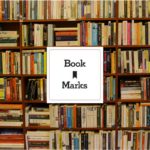
Get the Book Marks Bulletin
Email address:
- Categories Fiction Fantasy Graphic Novels Historical Horror Literary Literature in Translation Mystery, Crime, & Thriller Poetry Romance Speculative Story Collections Non-Fiction Art Biography Criticism Culture Essays Film & TV Graphic Nonfiction Health History Investigative Journalism Memoir Music Nature Politics Religion Science Social Sciences Sports Technology Travel True Crime
June 3, 2024
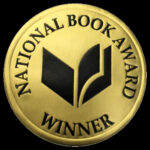
- Viet Thanh Nguyen looks back at the first National Book Awards
- Feisal G. Mohamed looks at the history of Palestinian solidarity
- Public libraries might need to worry about ransomware attacks
Holiday Gift Guide
The Ten Best History Books of 2020
Our favorite titles of the year resurrect forgotten histories and help explain how the country got to where it is today
/https://tf-cmsv2-smithsonianmag-media.s3.amazonaws.com/accounts/headshot/mellon.png)
Meilan Solly
Associate Editor, History
:focal(792x502:793x503)/https://tf-cmsv2-smithsonianmag-media.s3.amazonaws.com/filer/b4/b7/b4b7f646-0474-471c-93e6-4b82e6707561/history_2.jpg)
In a year marked by a devastating pandemic, a vitriolic presidential race and an ongoing reckoning with systemic racism in the United States, these ten titles served a dual purpose. Some offered a respite from reality, transporting readers to such varied locales as Tudor England, colonial America and ancient Jerusalem; others reflected on the fraught nature of the current moment, detailing how the nation’s past informs its present and future. From an irreverent biography of George Washington to a sweeping overview of 20th-century American immigration , these were some of our favorite history books of 2020.
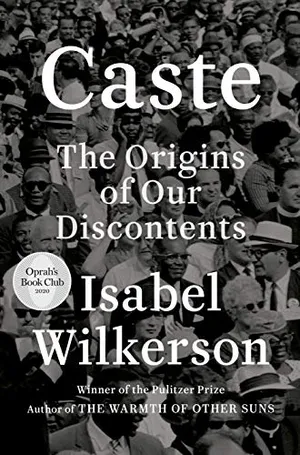
Caste: The Origins of Our Discontents
In this “ Oprah’s Book Club” pick , Isabel Wilkerson presents a compelling argument for shifting the language used to describe how black Americans are treated by their country. As the Pulitzer Prize–winning author tells NPR , “racism” is an insufficient term for the country’s ingrained inequality. A more accurate characterization is “ caste system ”—a phrase that better encapsulates the hierarchical nature of American society.
Drawing parallels between the United States, India and Nazi Germany, Wilkerson identifies the “ eight pillars ” that uphold caste systems: Among others, the list includes divine will, heredity, dehumanization, terror-derived enforcement and occupational hierarchies. Dividing people into categories ensures that those in the middle rung have an “inferior” group to compare themselves to, the author writes, and maintains a status quo with tangible ramifications for public health, culture and politics. “The hierarchy of caste is not about feelings or morality,” Wilkerson explains. “It is about power—which groups have it and which do not.”
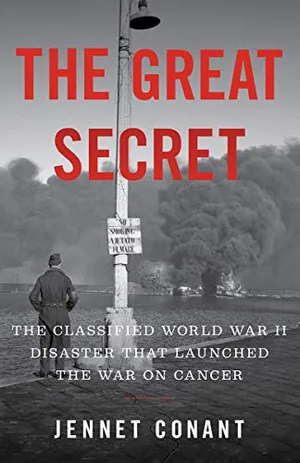
The Great Secret: The Classified World War II Disaster that Launched the War on Cancer
When the Nazis bombed Bari, a Mediterranean port city central to the Allied war effort, on December 2, 1943, hundreds of sailors sustained horrific injuries. Within days of the attack, writes Jennet Conant in The Great Secret , the wounded started exhibiting unexpected symptoms , including blisters “as big as balloons and heavy with fluid,” in the words of British nurse Gwladys Rees, and intense eye pain. “We began to realize that most of our patients had been contaminated by something beyond all imagination,” Rees later recalled.
American medical officer Stewart Francis Alexander, who’d been called in to investigate the mysterious maladies, soon realized that the sailors had been exposed to mustard gas. Allied leaders were quick to place the blame on the Germans, but Alexander found concrete evidence sourcing the contamination to an Allied shipment of mustard gas struck during the bombing. Though the military covered up its role in the disaster for decades, the attack had at least one positive outcome: While treating patients, Alexander learned that mustard gas rapidly destroyed victims’ blood cells and lymph nodes—a phenomenon with wide-ranging ramifications for cancer treatment. The first chemotherapy based on nitrogen mustard was approved in 1949, and several drugs based on Alexander’s research remain in use today.
Read an excerpt from The Great Secret that ran in the September 2020 issue of Smithsonian magazine .
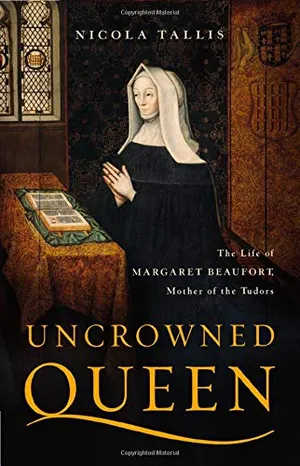
Uncrowned Queen: The Life of Margaret Beaufort, Mother of the Tudors
Though she never officially held the title of queen, Margaret Beaufort , Countess of Richmond, fulfilled the role in all but name, orchestrating the Tudor family’s rise to power and overseeing the machinations of government upon her son Henry VII ’s ascension. In Uncrowned Queen , Nicola Tallis charts the complex web of operations behind Margaret’s unlikely victory, detailing her role in the Wars of the Roses —a dynastic clash between the Yorkist and Lancastrian branches of the royal Plantagenet family—and efforts to win Henry, then in exile as one of the last Lancastrian heirs, the throne. Ultimately, Margaret emerges as a more well-rounded figure, highly ambitious and determined but not, as she’s commonly characterized, to the point of being a power-hungry religious zealot.
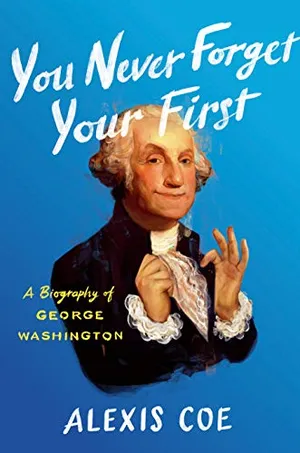
You Never Forget Your First: A Biography of George Washington
Accounts of George Washington’s life tend to lionize the Founding Father, depicting him as a “marble Adonis … rather than as a flawed, but still impressive, human being,” according to Karin Wulf of Smithsonian magazine . You Never Forget Your First adopts a different approach: As historian Alexis Coe told Wulf earlier this year, “I don’t feel a need to protect Washington; he doesn’t need me to come to his defense, and I don’t think he needed his past biographers to, either, but they’re so worried about him. I’m not worried about him. He’s everywhere. He’s just fine.” Treating the first president’s masculinity as a “foregone conclusion,” Coe explores lesser-known aspects of Washington’s life, from his interest in animal husbandry to his role as a father figure . Her pithy, 304-page biography also interrogates Washington’s status as a slaveholder, pointing out that his much-publicized efforts to pave the way for emancipation were “mostly legacy building,” not the result of strongly held convictions.
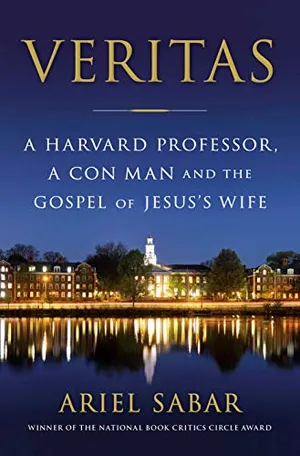
Veritas: A Harvard Professor, a Con Man and the Gospel of Jesus's Wife
Nine years after Dan Brown’s The Da Vinci Code popularized the theory that Jesus was married to Mary Magdalene, Harvard historian Karen L. King announced the discovery of a 1,600-year-old papyrus that seemingly supported the novel’s much-maligned premise. The 2012 find was an instant sensation, dividing scholars, the press and the public into camps of non-believers who dismissed it as a forgery and defenders who interpreted it as a refutation of longstanding ideals of Christian celibacy. For a time, the debate appeared to be at an impasse. Then, journalist Ariel Sabar —who’d previously reported on the fragment for Smithsonian —published a piece in the Atlantic that called the authenticity of King’s “Gospel of Jesus’s Wife” into question. Shortly after, King publicly stated that the papyrus was probably a forgery .
Veritas presents the full story of Sabar’s seven-year investigation for the first time, drawing on more than 450 interviews, thousands of documents, and trips around the world to reveal the fascinating figures behind the forgery: an amateur Egyptologist–turned–pornographer and a scholar whose “ideological commitments” guided her practice of history. Ultimately, Sabar concludes, King viewed the papyrus “as a fiction that advanced a truth”: namely, that women and sexuality played a larger role in early Christianity than previously acknowledged.
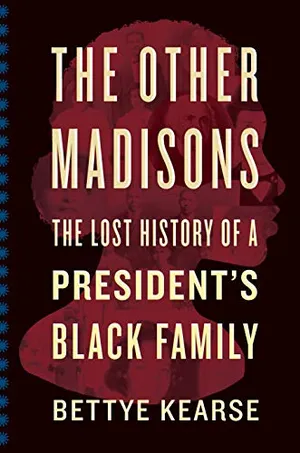
The Other Madisons: The Lost History of a President's Black Family
Bettye Kearse ’s mother had long viewed her family’s ties to President James Madison as a point of pride. “Always remember—you’re a Madison,” she told her daughter. “You come from African slaves and a president.” (According to family tradition, as passed down by generations of griot oral historians, Madison raped his enslaved half-sister, Coreen, who gave birth to a son—Kearse’s great-great-great-grandfather—around 1792.) Kearse, however, was unable to separate her DNA from the “humiliation, uncertainty, and physical and emotional harm” experienced by her enslaved ancestor.
To come to terms with this violent past, the retired pediatrician spent 30 years investigating both her own family history and that of other enslaved and free African Americans whose voices have been silenced over the centuries. Though Kearse lacks conclusive DNA or documentary evidence proving her links to Madison, she hasn’t let this upend her sense of identity. “The problem is not DNA,” the author writes on her website . “... [T]he problem is the Constitution,” which “set the precedent for the exclusion of [enslaved individuals] from historical records.”
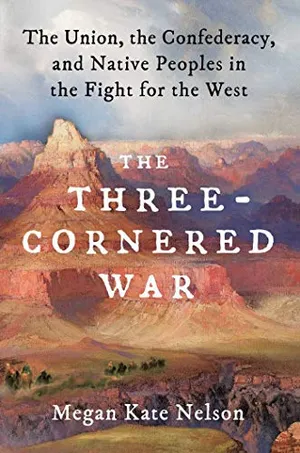
The Three-Cornered War: The Union, the Confederacy, and Native Peoples in the Fight for the West
While Union forces fought to end slavery in the American South, a smaller cadre of soldiers waged war in the West, battling pro-secessionist troops for control of the resource-rich Arizona and New Mexico Territories . The campaign essentially ended in late 1862, when the U.S. Army pushed Confederate forces back into Texas, but as Megan Kate Nelson writes in The Three-Cornered War , another battle—this time, between the United States and the region’s Apache and Navajo communities—was just beginning. Told through the lens of nine key players, including Apache leader Mangas Coloradas, Texas legislator John R. Baylor and Navajo weaver Juanita, Nelson’s account underscores the brutal nature of westward expansion, from the U.S. Army’s scorched-earth strategy to its unsavory treatment of defeated soldiers . Per Publishers Weekly , Nelson deftly argues that the United States’ priorities were twofold, including “both the emancipation of [slavery] and the elimination of indigenous tribes.”
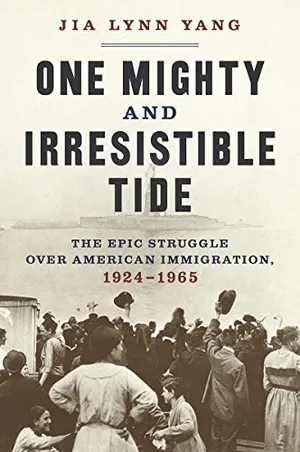
One Mighty and Irresistible Tide: The Epic Struggle Over American Immigration, 1924-1965
In 1924, Congress passed the Johnson-Reed Act , a eugenics-inspired measure that drastically limited immigration into the U.S. Controversial from its inception, the law favored immigrants from northern and Western Europe while essentially cutting off all immigration from Asia. Decisive legislation reversing the act only arrived in 1965, when President Lyndon B. Johnson (no relation), capitalizing on a brief moment of national unity sparked by predecessor John F. Kennedy’s assassination, signed the Hart-Celler Act —a measure that eliminated quotas and prioritized family unification—into law.
Jia Lynn Yang ’s One Mighty and Irresistible Tide artfully examines the impact of decades of xenophobic policy, spotlighting the politicians who celebrated America’s status as a nation of immigrants and fought for a more open and inclusive immigration policy. As Yang, a deputy national editor at the New York Times , told Smithsonian ’s Anna Diamond earlier this year, “The really interesting political turn in the '50s is to bring immigrants into this idea of American nationalism. It’s not that immigrants make America less special. It’s that immigrants are what make America special.”
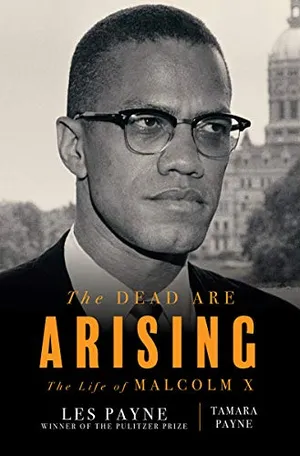
The Dead Are Arising: The Life of Malcolm X
When Pulitzer Prize–winning journalist Les Payne died of a heart attack in 2018, his daughter, Tamara, stepped in to complete his unfinished biography of civil rights leader Malcolm X. Upon its release two years later, the 500-page tome garnered an array of accolades, including a spot on the 2020 National Book Awards shortlist. Based on 28 years of research, including hundreds of interviews with Malcolm’s friends, family acquaintances, allies and enemies, The Dead Are Arising reflects the elder Payne’s dedication to tirelessly teasing out the truth behind what he described as the much-mythologized figure’s journey “from street criminal to devoted moralist and revolutionary.” The result, writes Publishers Weekly in its review, is a “richly detailed account” that paints “an extraordinary and essential portrait of the man behind the icon.”
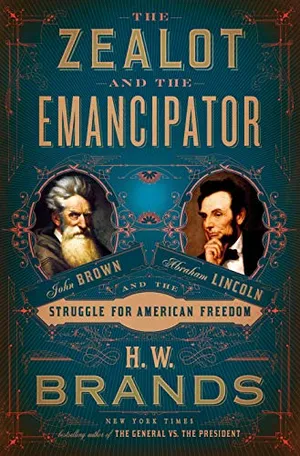
The Zealot and the Emancipator: John Brown, Abraham Lincoln, and the Struggle for American Freedom
In this dual biography, H.W. Brands seeks to address an age-old question : “What does a good man do when his country commits a great evil?” Drawing on two prominent figures in Civil War history as case studies, the historian outlines differing approaches to the abolition of slavery, juxtaposing John Brown’s “violent extremism” with Abraham Lincoln’s “coolheaded incrementalism,” as Alexis Coe writes in the Washington Post ’s review of The Zealot and the Emancipator . Ultimately, Brands tells NPR , lasting change requires both “the conscience of people like John Brown” (ideally with an understanding that one can take these convictions too far) and “the pragmatism and the steady hand of the politician—the pragmatists like Lincoln.”
Having trouble seeing our list of books? Turn off your ad blocker and you'll be all set. For more recommendations, check out The Best Books of 2020 .
By buying a product through these links, Smithsonian magazine may earn a commission. 100 percent of our proceeds go to supporting the Smithsonian Institution.
Get the latest History stories in your inbox?
Click to visit our Privacy Statement .
A Note to our Readers Smithsonian magazine participates in affiliate link advertising programs. If you purchase an item through these links, we receive a commission.
/https://tf-cmsv2-smithsonianmag-media.s3.amazonaws.com/accounts/headshot/mellon.png)
Meilan Solly | | READ MORE
Meilan Solly is Smithsonian magazine's associate digital editor, history.
Why is Christian Science in our name?
Our name is about honesty. The Monitor is owned by The Christian Science Church, and we’ve always been transparent about that.
The Church publishes the Monitor because it sees good journalism as vital to progress in the world. Since 1908, we’ve aimed “to injure no man, but to bless all mankind,” as our founder, Mary Baker Eddy, put it.
Here, you’ll find award-winning journalism not driven by commercial influences – a news organization that takes seriously its mission to uplift the world by seeking solutions and finding reasons for credible hope.
Your subscription makes our work possible.
We want to bridge divides to reach everyone.

Deepen your worldview with Monitor Highlights.
Already a subscriber? Log in to hide ads .
Select free newsletters:
A thoughtfully curated selection of our most popular news stories and podcasts.
Every Monday, Wednesday, and Friday
Hear about special editorial projects, new product information, and upcoming events.
An update on major political events, candidates, and parties twice a week.
Twice a Week
Stay informed about the latest scientific discoveries & breakthroughs.
Every Tuesday
A weekly digest of Monitor views and insightful commentary on major events.
Every Thursday
Latest book reviews, author interviews, and reading trends.
Every Friday
A weekly update on music, movies, cultural trends, and education solutions.
The three most recent Christian Science articles with a spiritual perspective.
Every Monday
The best nonfiction books of 2020 offer wisdom and insight
Explore the life of intrepid explorer Sanmao, how America rewrote its own history, and Abraham Lincoln’s legacy in the best nonfiction titles of 2020.
- By Monitor reviewers
December 9, 2020
Curious minds deserve insightful books, and there was no shortage of excellent titles this year. Here is the Monitor’s list of superlative nonfiction books published in 2020, from histories to memoirs and everything in between.
“Caste” by Isabel Wilkerson
In her stirring follow-up to “The Warmth of Other Suns,” Pulitzer Prize-winning journalist Isabel Wilkerson persuasively argues that racism alone does not explain America’s social divisions. Rather, the United States ought to be understood as having a race-based caste system, one whose hierarchies, though artificial, are remarkably enduring.
“Demagogue” by Larry Tye

Bestselling biographer Larry Tye writes a long and comprehensive biography of Sen. Joseph McCarthy , the polarizing spearhead of the Red Scare of the 1950s and – Tye contends – the origin of some disturbing features in our 21st-century political landscape.
“Warhol” by Blake Gopnik
“In the future, everyone will be world-famous for 15 minutes,” Andy Warhol is credited with saying. But there is nothing fleeting about his legacy as an artist, filmmaker, and self-created pop-culture phenomenon. His life and work are examined in detail in Blake Gopnik’s biography . Warhol devotees will rejoice, and more casual readers will receive an education in all things Andy.
“Union” by Colin Woodard
Colin Woodard tells not the story of how America became a nation, but rather of how America crafted its own version of its national history, and how that national mythology has changed over the decades.
“Stories of the Sahara” by Sanmao

As a Chinese woman born in 1943, Sanmao was a pioneering global citizen. These 20 essays about living in one of the harshest areas of the world in the 1970s are testimony to her audacity and courage.
“Just Us” by Claudia Rankine
Claudia Rankine follows her prize-winning “Citizen: An American Lyric” with a brilliant and timely examination of whiteness in America. This consciousness-raising, bravura combination of personal essays, poems, photographs, and cultural commentary works on so many levels and is a skyscraper in the literature on racism.
“Dark Mirror” by Barton Gellman
Pulitzer Prize-winning journalist Barton Gellman writes an insider account of the breaking of Edward Snowden’s story and its wider implications for the modern world, all told in prose as gripping as a spy thriller.
“Cross of Snow” by Nicholas A. Basbanes

The poems of Henry Wadsworth Longfellow aren’t in fashion today, but in the first major biography of the fabled New England poet in many years, Nicholas A. Basbanes argues that Longfellow is making a comeback . His exhaustively researched account of Longfellow’s career should give that reappraisal a boost.
“Becoming Wild” by Carl Safina
Carl Safina looks at three species – the sperm whale, the scarlet macaw, and the chimpanzee – to chart all the ways they build and sustain their societies. He explores how those cultures echo and differ from our own .
“The Golden Thread” by Ravi Somaiya
U.N. Secretary-General Dag Hammarskjöld was negotiating an end to the Congolese civil war when he died in a plane crash in 1961. To this day, many believe he was assassinated. Journalist Ravi Somaiya explores one of the most compelling mysteries of the Cold War in this grim and absorbing book.
“Abe” by David S. Reynolds
Abraham Lincoln had less than a year of formal education; he has often been portrayed as inexperienced and unprepared to lead. David S. Reynolds’ monumental, reverential biography rejects that narrative , arguing that Lincoln’s immersion in the high and low culture of 19th-century America, along with his deep moral convictions, equipped him to steer the Union through the Civil War.
“Eleanor” by David Michaelis
This riveting, cinematic biography of America’s longest-serving first lady spans Eleanor Roosevelt’s lonely childhood, her frosty marriage to FDR, their White House years, her intimate relationships outside their marriage, and her widowhood, during which she became an advocate for human rights.
“Veritas” by Ariel Sabar

In 2012, a religion scholar announced a discovery: an ancient papyrus fragment that suggested that Jesus Christ and Mary Magdalene may have been married. Expanding on his 2016 article for The Atlantic, Ariel Sabar digs into the story of the papyrus and the couple who tried to pass it off as real.
“The Adventurer’s Son” by Roman Dial
Renowned biologist and explorer Roman Dial searches for his 27-year-old son , who has gone missing in the jungles of Costa Rica. Part memoir, part mystery, “The Adventurer’s Son” is a story of a father’s love – for his son, and for the natural world.
Help fund Monitor journalism for $11/ month
Already a subscriber? Login

Monitor journalism changes lives because we open that too-small box that most people think they live in. We believe news can and should expand a sense of identity and possibility beyond narrow conventional expectations.
Our work isn't possible without your support.
Unlimited digital access $11/month.

Digital subscription includes:
- Unlimited access to CSMonitor.com.
- CSMonitor.com archive.
- The Monitor Daily email.
- No advertising.
- Cancel anytime.

Related stories
Before history devolves into mythology: 2020’s best books on world war ii, make an october date with eleanor roosevelt, cary grant, sylvia plath, they persisted: tales of endurance lead the 10 best books of september, share this article.
Link copied.
Dear Reader,
About a year ago, I happened upon this statement about the Monitor in the Harvard Business Review – under the charming heading of “do things that don’t interest you”:
“Many things that end up” being meaningful, writes social scientist Joseph Grenny, “have come from conference workshops, articles, or online videos that began as a chore and ended with an insight. My work in Kenya, for example, was heavily influenced by a Christian Science Monitor article I had forced myself to read 10 years earlier. Sometimes, we call things ‘boring’ simply because they lie outside the box we are currently in.”
If you were to come up with a punchline to a joke about the Monitor, that would probably be it. We’re seen as being global, fair, insightful, and perhaps a bit too earnest. We’re the bran muffin of journalism.
But you know what? We change lives. And I’m going to argue that we change lives precisely because we force open that too-small box that most human beings think they live in.
The Monitor is a peculiar little publication that’s hard for the world to figure out. We’re run by a church, but we’re not only for church members and we’re not about converting people. We’re known as being fair even as the world becomes as polarized as at any time since the newspaper’s founding in 1908.
We have a mission beyond circulation, we want to bridge divides. We’re about kicking down the door of thought everywhere and saying, “You are bigger and more capable than you realize. And we can prove it.”
If you’re looking for bran muffin journalism, you can subscribe to the Monitor for $15. You’ll get the Monitor Weekly magazine, the Monitor Daily email, and unlimited access to CSMonitor.com.
Subscribe to insightful journalism
Subscription expired
Your subscription to The Christian Science Monitor has expired. You can renew your subscription or continue to use the site without a subscription.
Return to the free version of the site
If you have questions about your account, please contact customer service or call us at 1-617-450-2300 .
This message will appear once per week unless you renew or log out.
Session expired
Your session to The Christian Science Monitor has expired. We logged you out.
No subscription
You don’t have a Christian Science Monitor subscription yet.
You have exceeded your limit for simultaneous device logins.
Your current subscription allows you to be actively logged in on up to three (3) devices simultaneously. click on continue below to log out of other sessions and log in on this device., best biographies and memoirs of 2020.

Malcolm X, Rose Pastor Stokes, Natasha Trethewey. The best biographies & memoirs published in 2020.
See all of our 2020 Best Books lists

Burks writes a compelling personal perspective of what the AIDS crisis was like in Arkansas, where the stigma was magnified and the complacence infuriating. This is a powerful memoir about personal responsibility, and Burks’s spirited, straightforward voice balances the heartbreak of her story with just enough humor and toughness.

Cho’s candid memoir sheds insight into the inequities of maternal care in the United States and the stigma of mental illness, especially among people of color. It takes care to remind readers what is needed to ensure that maternal care and mental illness are divested of stigma.

Crawford’s brave, brilliant, beautifully written memoir reveals the multifaceted effects of trauma on the life of a survivor of sexual assault, the damage done by some of the ways in which disclosures happen, and the power of finding a voice on one’s own terms, if and when one feels supported, sustained, and able to speak.

In this widely acclaimed memoir, Hinojosa interweaves her own story of coming to the United States from Mexico with her family as an infant with stories of how her work as an award-winning journalist closely examines issues of identity and immigration. This riveting account will inspire, educate, and entertain.

Bringing us into the life of Rose Pastor Stokes, Hochschild highlights her legacy as a leading speaker and writer who raised significant funds and attention for causes such as immigrant poverty, labor unions, birth control, and women’s suffrage. This is also a timely book, with its focus on societal inequality.

Recounting her childhood during the Liberian civil war, Moore’s memoir takes readers from a child’s journey to a mother’s memory, narrating her family’s flight to safety and the displacement of diaspora. Her writing shines as it weaves moments of lightness into a story of pain and conflict, loss and reunion.

Award-winning investigative journalist Les Payne, along with his daughter Tamara, flesh out the formative years of Malcolm X, and add texture to his worldview. Extensive oral interviews with family offer a new dimension into Malcolm X’s biography and show a rich portrait of Black life prior to World War II.

Talusan’s compelling debut stands out, not only because of her experiences, but also because she presents them with a rare, frank vulnerability. As a trans woman, she offers an intensely personal example of how one’s relation to oneself changes over time, shaped by circumstances and personal choices.

With spare prose and vivid imagery, Poet Laureate and Pulitzer Prize winner Trethewey writes a narrative of a trauma survivor’s need to remember a past that has lapsed into the mind’s shadows. Her words are moving and heartbreaking as she recounts the power of memory and her long path to healing.

Wizenberg’s memoir explores how a chance encounter upended her marriage and set in motion a new direction for her life, as she began to question her identity and sexual orientation. Her book shines when rendering female sexuality as more complicated and fluid than many allow.
Get Print. Get Digital. Get Both!
Add comment :-, comment policy:.
- Be respectful, and do not attack the author, people mentioned in the article, or other commenters. Take on the idea, not the messenger.
- Don't use obscene, profane, or vulgar language.
- Stay on point. Comments that stray from the topic at hand may be deleted.
- Comments may be republished in print, online, or other forms of media.
- If you see something objectionable, please let us know. Once a comment has been flagged, a staff member will investigate.
First Name should not be empty !!!
Last Name should not be empty !!!
email should not be empty !!!
Comment should not be empty !!!
You should check the checkbox.
Please check the reCaptcha

Ethan Smith
Lorem Ipsum is simply dummy text of the printing and typesetting industry. Lorem Ipsum has been the industry's standard dummy text ever since the 1500s, when an unknown printer took a galley of type and scrambled it to make a type specimen book.
Posted 6 hours ago REPLY
Jane Fitgzgerald
Posted 6 hours ago
Michael Woodward
Continue reading.
Libraries are always evolving. Stay ahead. Log In.

Added To Cart
Related , fabulous first impressions | top 10 book covers of the year, best pop fiction of 2023, best crime fiction of 2023, best sf/fantasy of 2023, best horror of 2023, best romance of 2023, "what is this" design thinking from an lis student.

Run Your Week: Big Books, Sure Bets & Titles Making News | July 17 2018

Materials on Hand | Materials Handling

LGBTQ Collection Donated to Vancouver Archives
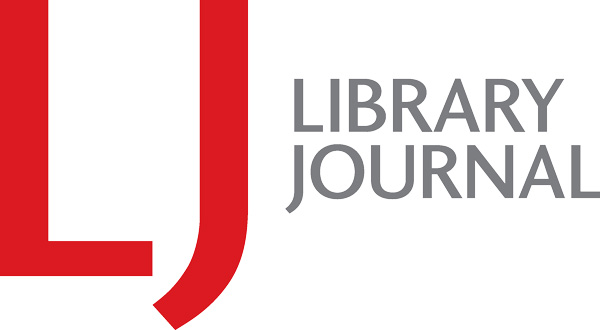
Lorem ipsum dolor sit amet, --> Log In
You did not sign in correctly or your account is temporarily disabled
REGISTER FREE to keep reading
If you are already a member, please log in.
Passwords must include at least 8 characters.
Your password must include at least three of these elements: lower case letters, upper case letters, numbers, or special characters.
The email you entered already exists. Please reset your password to gain access to your account.
Create a Password to complete your registration. Get access to:
Uncommon insight and timely information
Thousands of book reviews
Blogs, expert opinion, and thousands of articles
Research reports, data analysis, -->